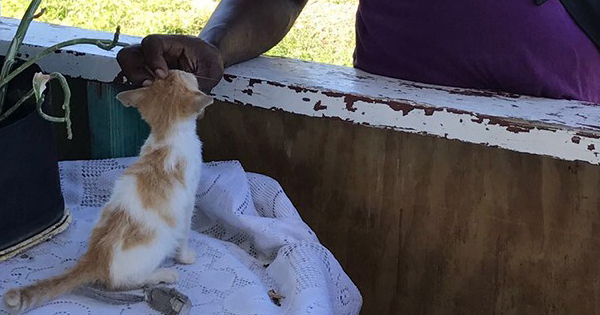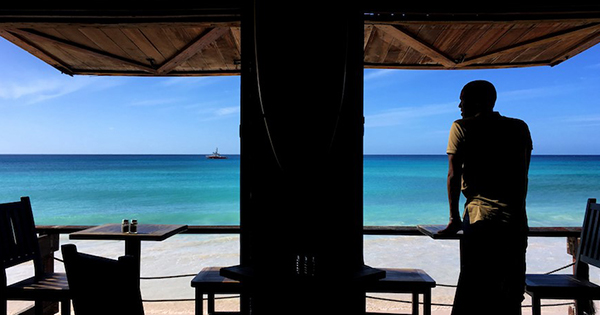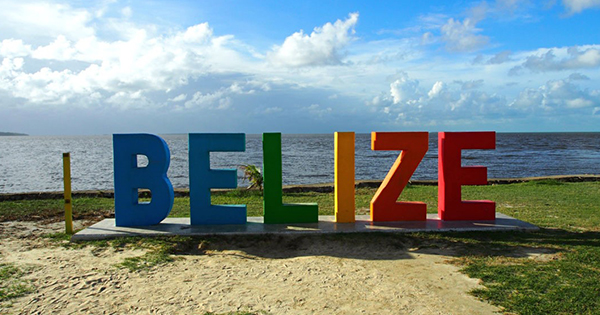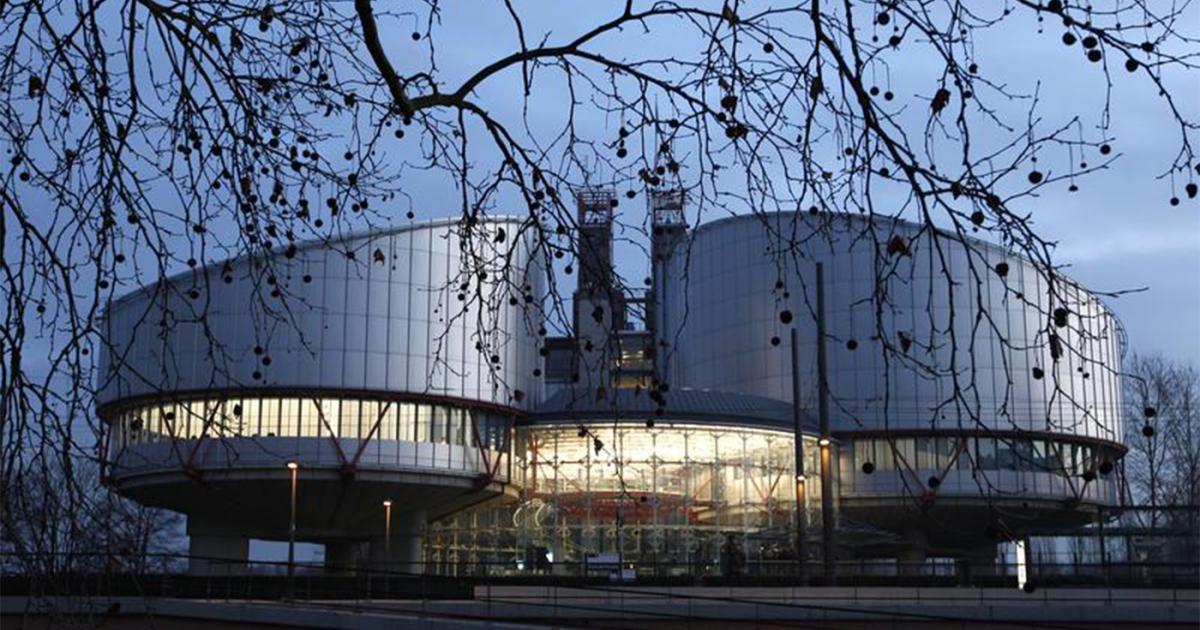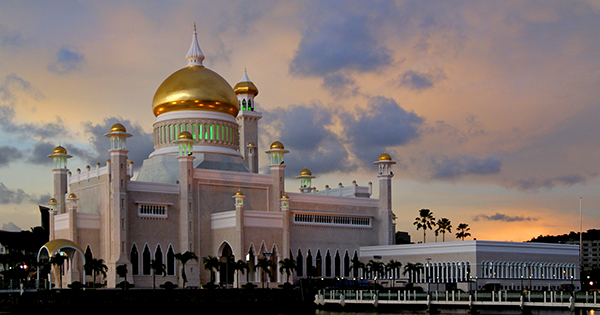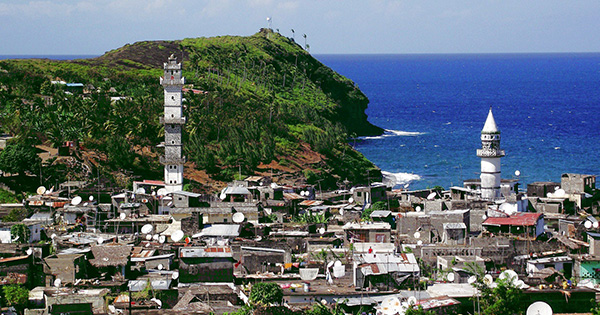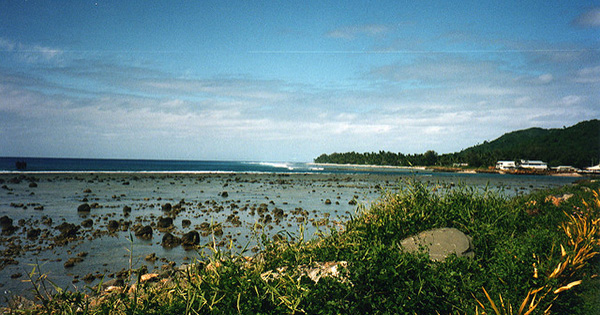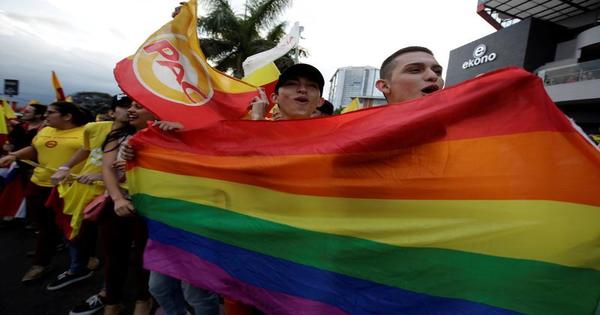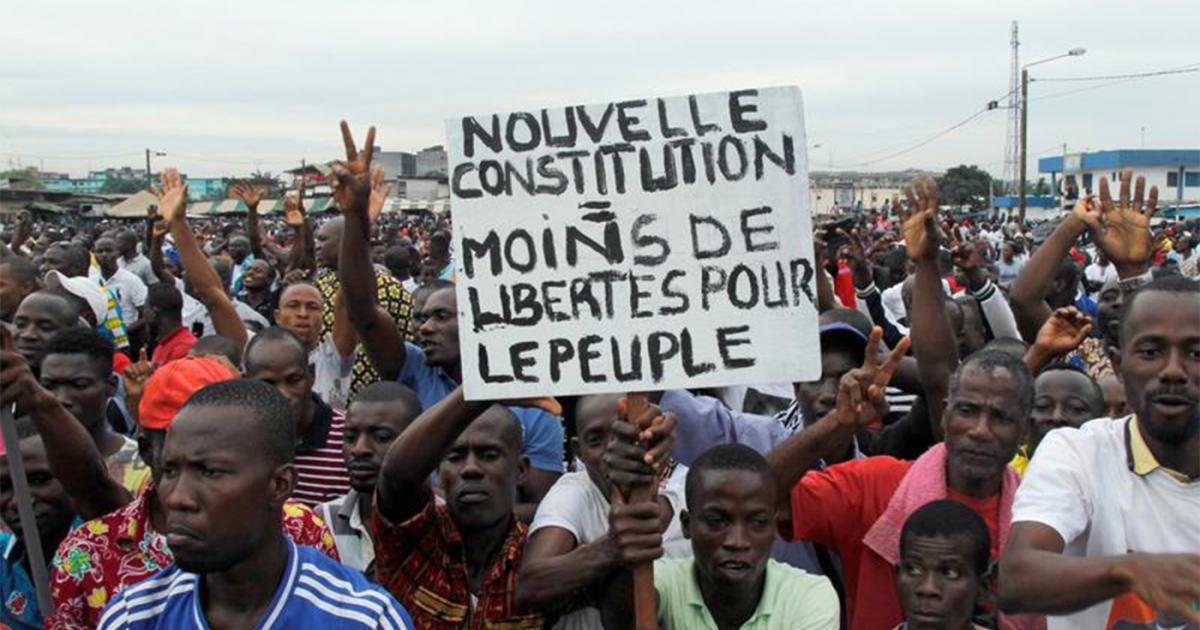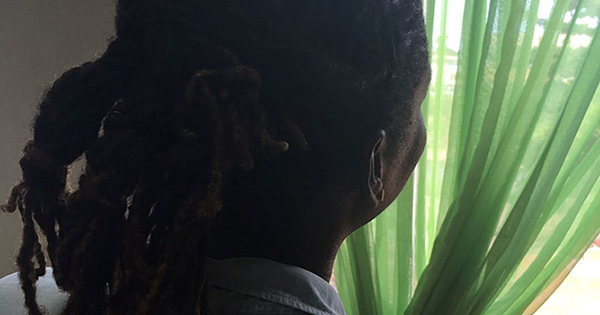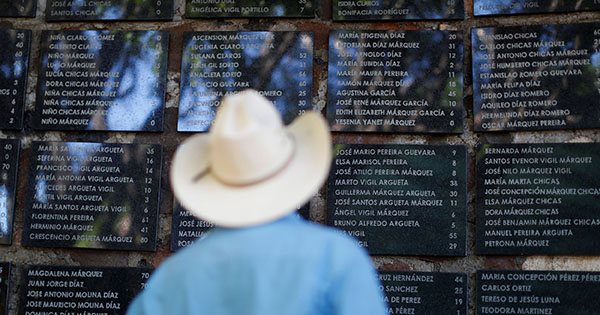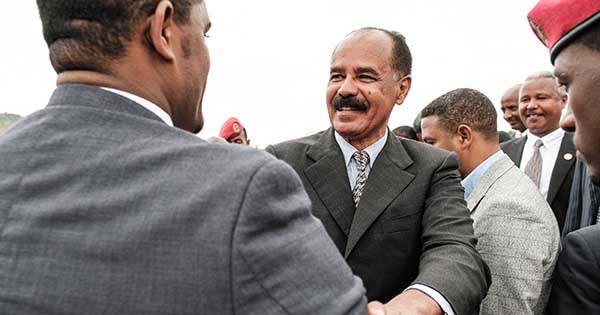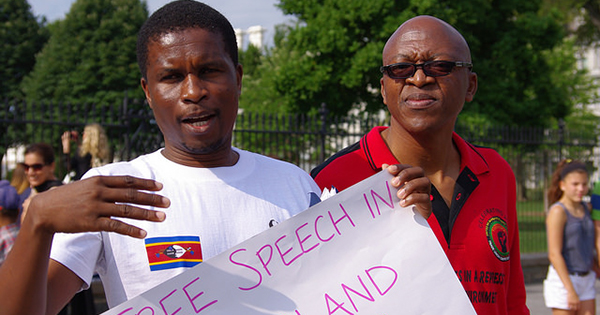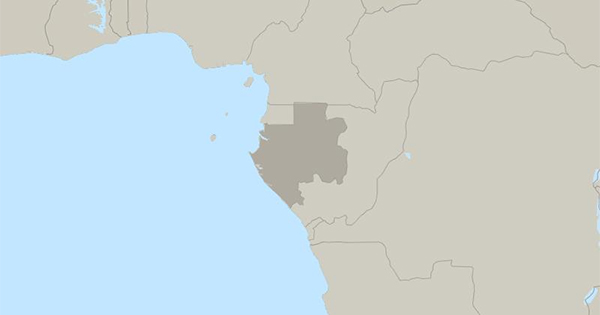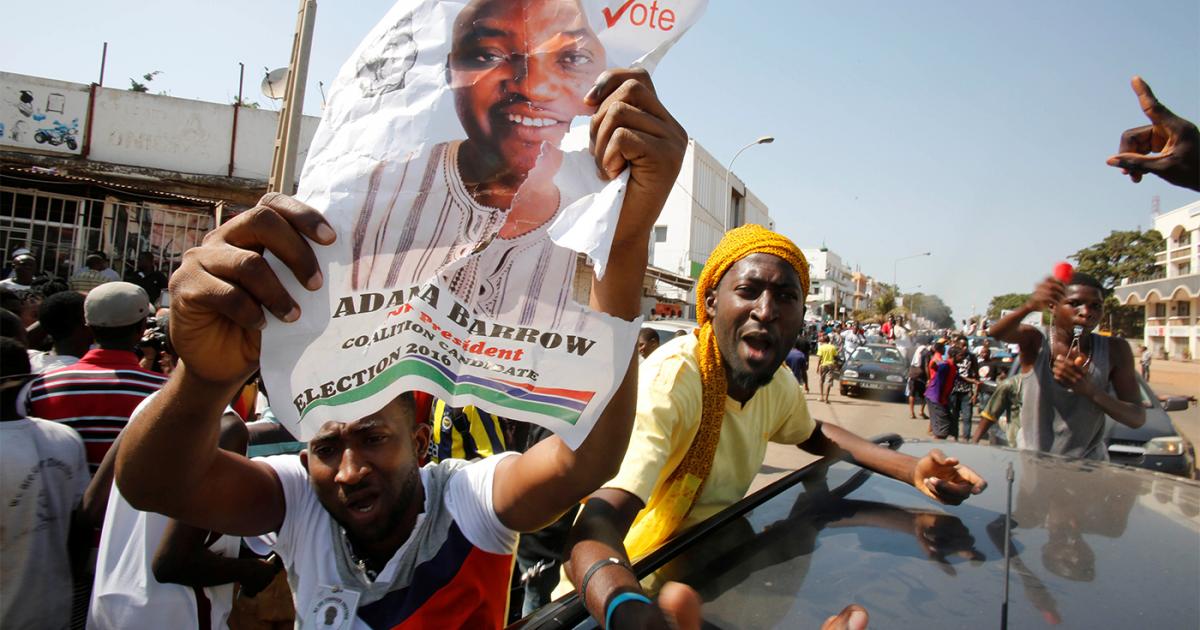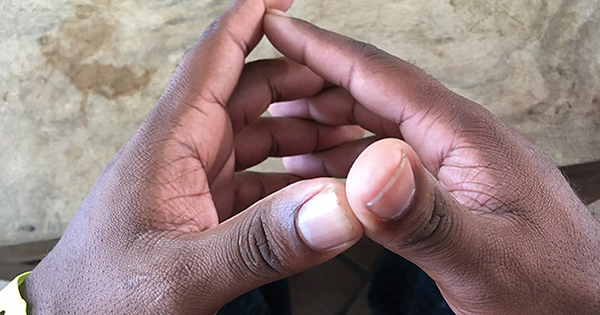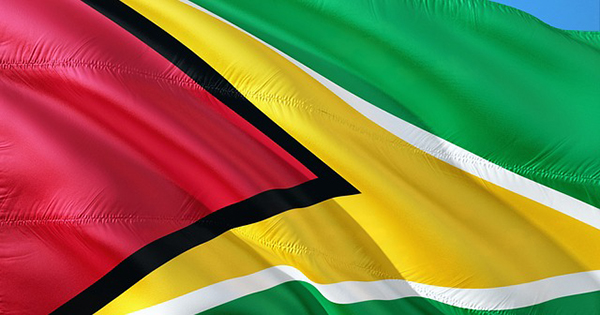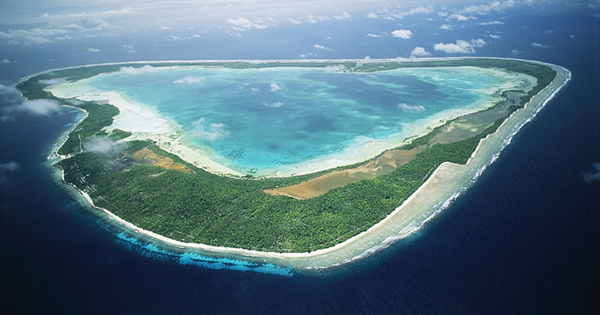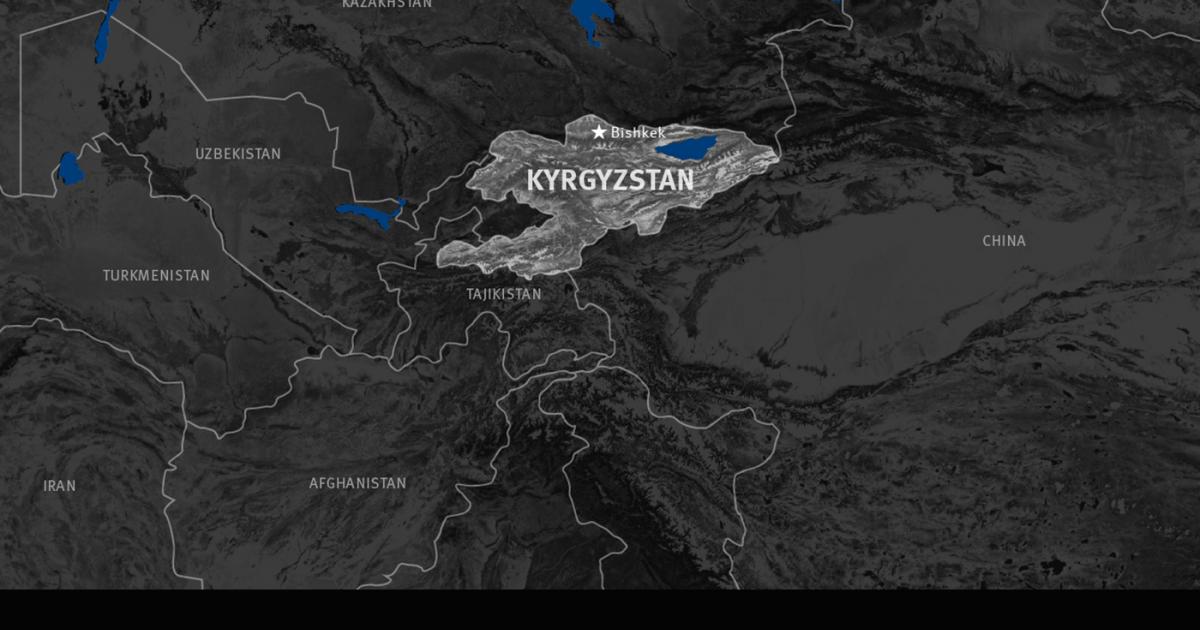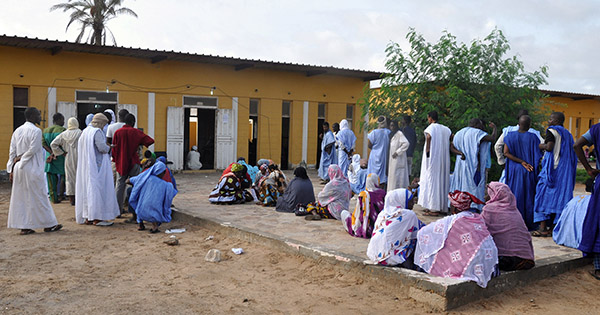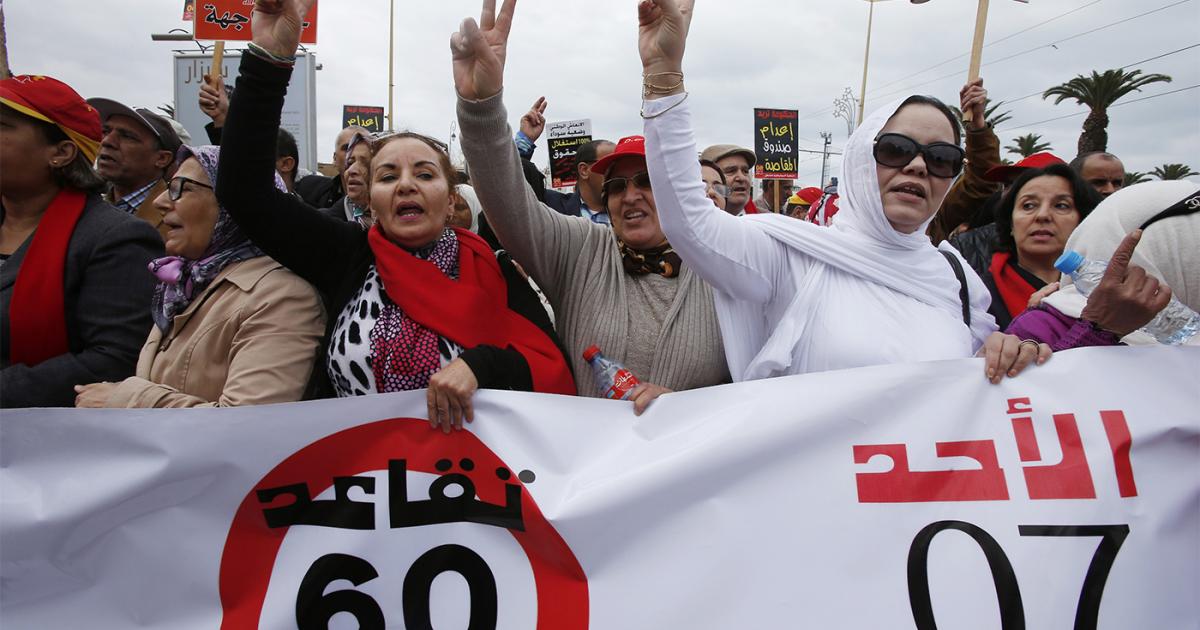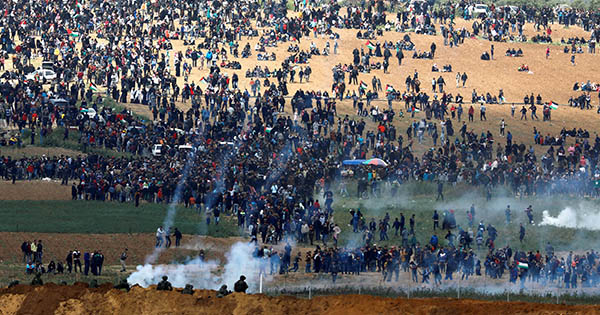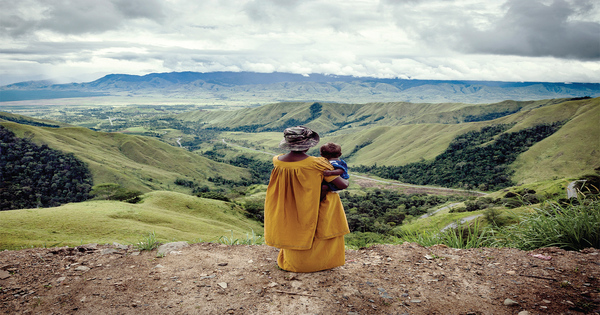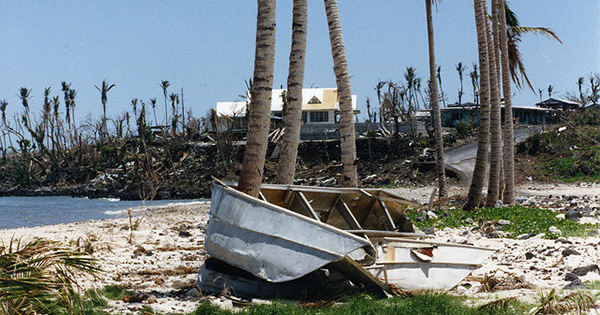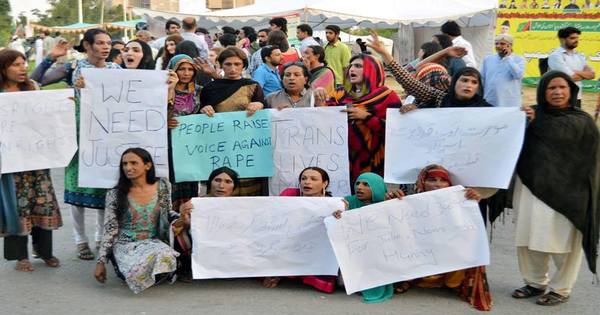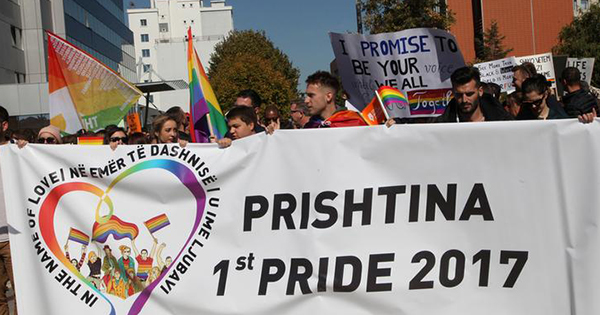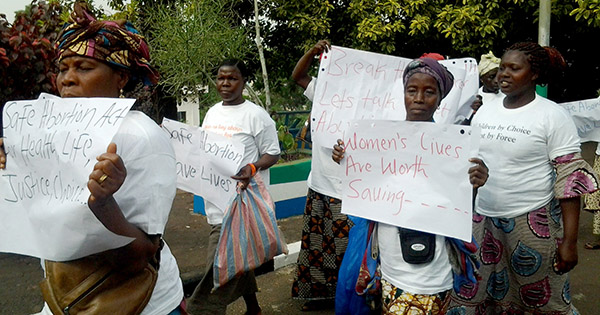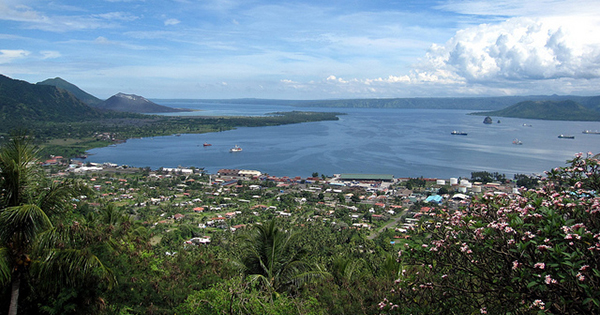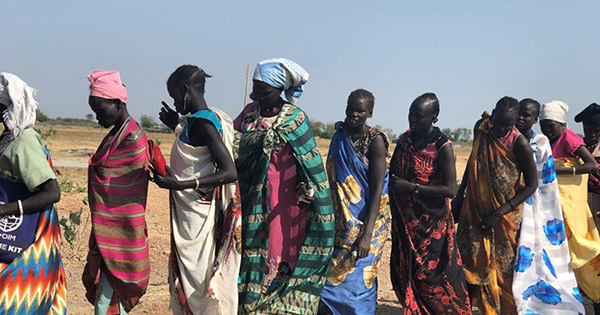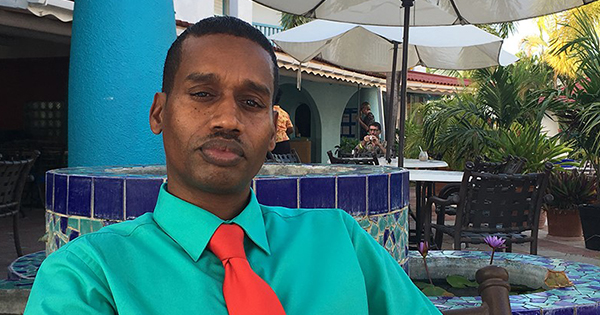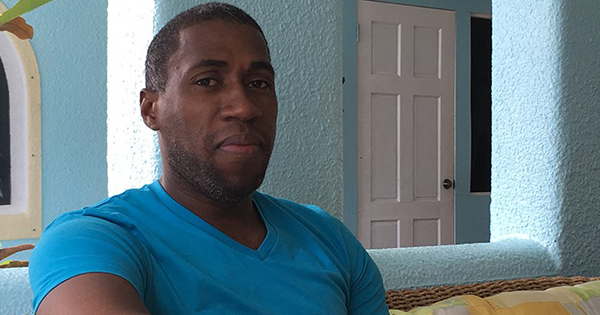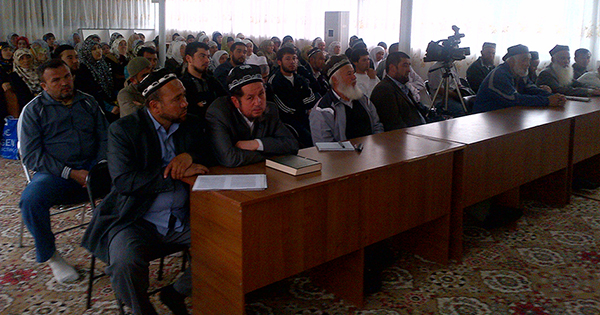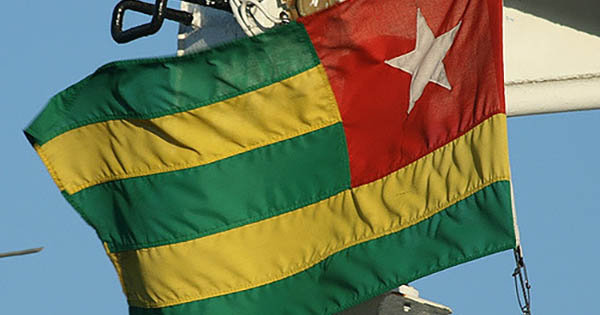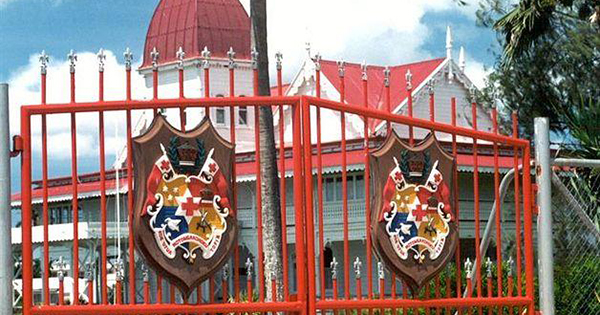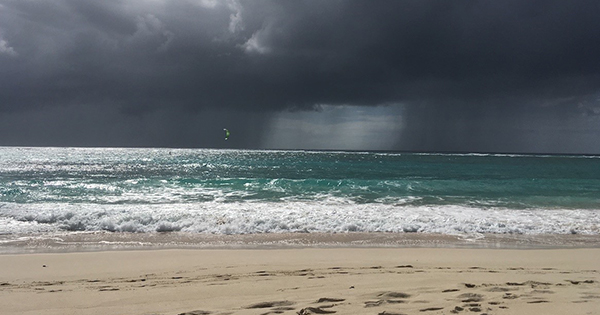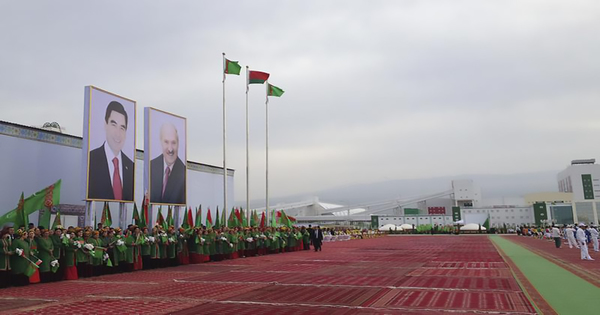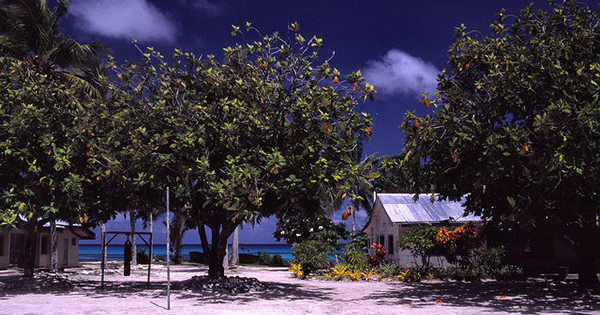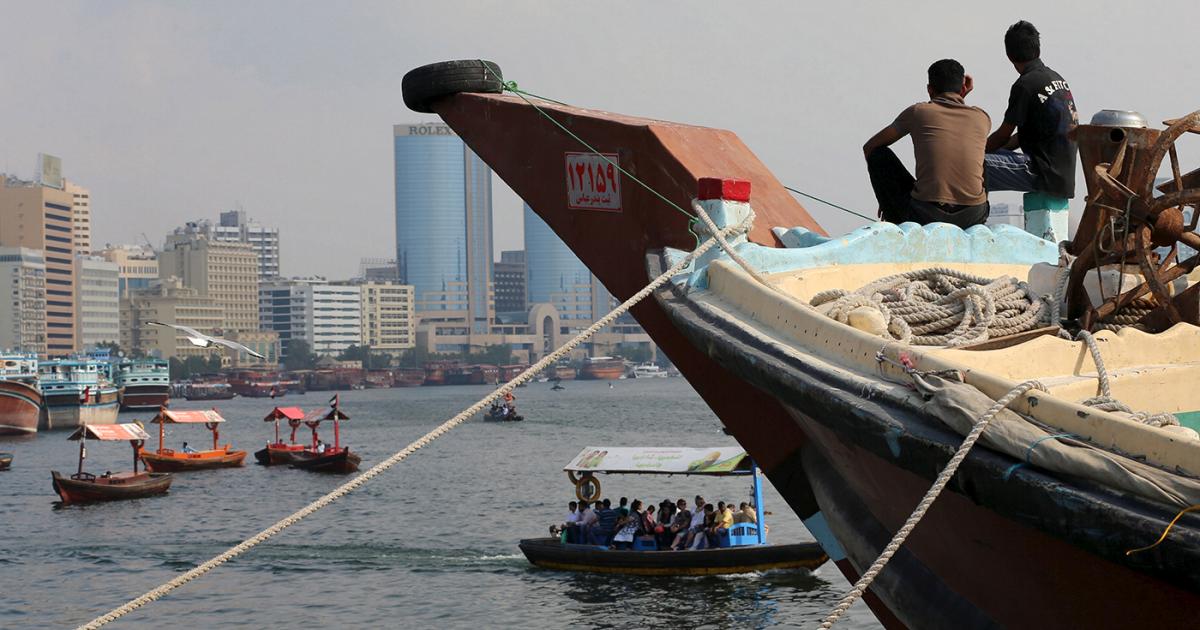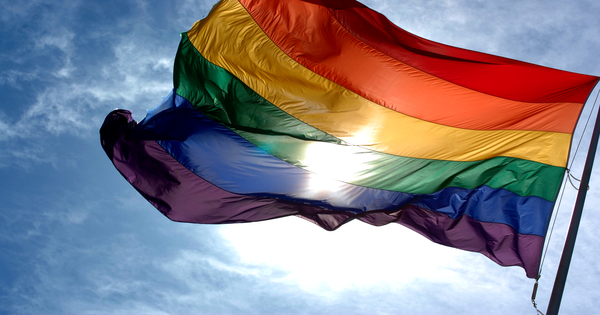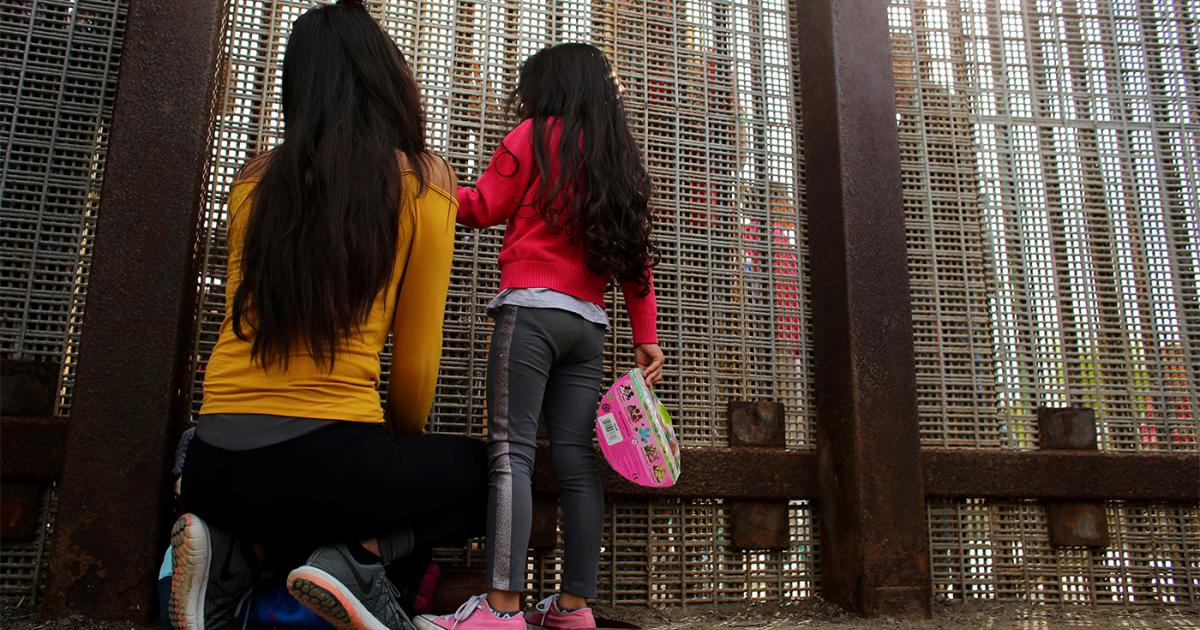In February 2018 Afghanistan adopted a new penal code that explicitly criminalizes consensual same-sex relations. More »
×Afghanistan
In February 2018 Afghanistan adopted a new penal code that explicitly criminalizes consensual same-sex relations. The penal code punishes musaheqeh (sexual relations between women) with up to one year in prison. It punishes sodomy, defined as “penetration of a male sexual organ into a female or a male anus,” with up to two years in prison. Under the previous penal code, “pederasty,” not further defined, was criminalized, as was all sex outside of marriage (zina).
Same-sex relations are punishable under article 338 of the penal code by up to two years in prison. More »
×Algeria
Same-sex relations are punishable under article 338 of the penal code by up to two years in prison. At a press conference in September 2018 during a visit by German Chancellor Angela Merkel, a journalist asked former Prime Minister Ahmed Ouyahia about the rights of homosexuals. Ouyahia replied that “Algerian society has its own traditions, which will continue to evolve according to its values.”
In January 2019, Angola scrapped its colonial-era penal code, which characterized homosexuality as “vices against nature,” and adopted a new penal code that does not criminalize same-sex conduct. The new penal code also prohibits discrimination on the grounds of sexual orientation. More »
×Angola
In January 2019, Angola scrapped its colonial-era penal code, which characterized homosexuality as “vices against nature,” and adopted a new penal code that does not criminalize same-sex conduct. The new penal code also prohibits discrimination on the grounds of sexual orientation.
In June 2018, the Angolan government gave legal status to Iris Angola, the country's only LGBTI rights lobby group, which was established in 2013. Iris Angola has often complained that its members face discrimination accessing health and education services, mainly because of the lack of recognition from the state institutions. The group called the decision a “historic moment” that will allow it to defend the rights of sexual minorities in Angola.
Antigua and Barbuda's 1995 Sexual Offences Act criminalizes the act of “buggery” between consenting adults with a sentence of 15 years in prison, and acts of “serious indecency” with up to 5 years. Human Rights Watch has documented homophobic violence and threats faced by gay men and trans women in Antigua and Barbuda. More »
×Antigua and Barbuda
Antigua and Barbuda's 1995 Sexual Offences Act criminalizes the act of “buggery” between consenting adults with a sentence of 15 years in prison, and acts of “serious indecency” with up to 5 years. Human Rights Watch has documented homophobic violence and threats faced by gay men and trans women in Antigua and Barbuda.
The Royal Police Force of Antigua and Barbuda has undergone LGBTI sensitization training to better protect the rights of LGBTI people, facilitated by Caribbean activists.
In 2016, following its UN Universal Periodic Review, the minister of social transformation announced that she was willing to introduce to cabinet a recommendation to strike down the buggery laws, but as of 2019, they remain in place in Antigua and Barbuda.
In November 2019, the Eastern Caribbean Alliance for Diversity and Equality announced it planned to launch a legal challenge against the criminalization of private, consensual same-sex sexual activity.
Read the full Eastern Caribbean Report »
Share:
In 2010, Argentina became the first Latin American country to legalize same-sex marriage. More »
×Argentina
In 2010, Argentina became the first Latin American country to legalize same-sex marriage. The Civil Marriage Law allows same-sex couples to enter civil marriages and affords them the same legal marital protections as different-sex couples, including adoption rights and pension benefits. Since 2010 more than 18,000 same-sex couples have married nationwide.
LGBT people in Armenia face harassment, discrimination, and violence. Discussions around the ratification of the Council of Europe Convention on Preventing and Combating Violence Against Women and Domestic Violence (Istanbul Convention) descended to hateful and derogatory speech by some public officials against LGBT people, suggesting that the convention has a hidden agenda of “LGBT propaganda” and legitimizing same-sex marriage. More »
×Armenia
LGBT people in Armenia face harassment, discrimination, and violence. Discussions around the ratification of the Council of Europe Convention on Preventing and Combating Violence Against Women and Domestic Violence (Istanbul Convention) descended to hateful and derogatory speech by some public officials against LGBT people, suggesting that the convention has a hidden agenda of “LGBT propaganda” and legitimizing same-sex marriage. The second largest party in parliament, Prosperous Armenia, introduced a bill proposing criminalization of “propaganda of non-traditional sexual orientation” among people under 16. The relevant committee of parliament rejected the bill, and it did not advance to full parliamentary debate. On April 5, 2019, a transgender woman, Lilit Martirosyan, became the first openly LGBT Armenian to address parliament, but her speech was followed by death threats.
In February 2019, Max Varzhapetyan, a 24-year-old gay activist, was assaulted and beaten in Yerevan. Three men chased and beat him, shouting profanities and homophobic slurs. Varzhapetyan sustained several injuries. Police opened a criminal investigation, but no one has been charged at this writing. In another such case in August 2018, a crowd of about 30 people attacked nine LGBT activists in a southern Armenian village. The assailants ran after Hayk Hakobyan and his fellow activists as they tried to escape, hitting, kicking, throwing stones, and shouting profanities, injuring six. Police questioned several of the attackers. The investigation against four alleged perpetrators was dropped after an amnesty, but was reopened following the victims' appeal. The investigation against one alleged perpetrator was dropped due to alleged lack of a crime. Although the investigation continues against those who beat the victims, at this writing, no one has been charged. Hakobyan had been the victim of another homophobic assault in April 2018. He reported it, but authorities failed to effectively investigate.
In all, the LGBT rights organization PINK Armenia documented 25 physical attacks against people based on sexual orientation or gender identity in 2018. However, fear of discrimination and public disclosure of their sexual orientation prevents many LGBT people from reporting crimes. The criminal code does not recognize homophobia as an aggravating criminal circumstance, and a government bill on equality does not include sexual orientation and gender identity as grounds for protection from discrimination.
Openly gay men fear for their physical security in the military, and some seek exemption from serving in the army. An exemption, however, requires a medical conclusion finding them “psychologically or mentally unfit” to serve. A finding of “psychological or mental disorder” could be an obstacle to employment or obtaining a driver's license. In January 2019, Artak (Adam) Arakelyan, 19, a queer activist, was subjected to abuse and discrimination at a military draft board, where officers variously used homophobic slurs to describe him, mocked him, and threatened to out him to his father. Various law enforcement agencies rejected Arakelyan's request for an investigation into the incident.
Austria conducted its first same-sex marriages on January 1, 2019. More »
×Austria
Austria conducted its first same-sex marriages on January 1, 2019. Marriage equality came to Austria following a December 2017 Constitutional Court ruling that the government and Parliament had until January 1, 2019, to introduce legislation allowing same-sex couples to marry. The government took no action to pass legislation, but in accordance with the court ruling, in the absence of government action, the law on civil marriage law is now to be automatically read as if amended.
Although no law has specifically criminalized same-sex acts between adults over the age of 21 since the repeal of the 1955 British-imposed Penal Code in 1976, the authorities have reportedly prosecuted acts such as organizing a “gay party” or cross-dressing under vague penal code provisions against “indecency” and “immorality.” More »
×Bahrain
Although no law has specifically criminalized same-sex acts between adults over the age of 21 since the repeal of the 1955 British-imposed Penal Code in 1976, the authorities have reportedly prosecuted acts such as organizing a “gay party” or cross-dressing under vague penal code provisions against “indecency” and “immorality.”
Revisions to the labor law in December 2018 prohibit discrimination on the basis of sex, but do not refer to sexual orientation or gender identity.
Section 377 of the Bangladeshi penal code punishes “carnal intercourse against the order of nature” by up to life imprisonment. The government has taken some positive steps in recent years, such as declaring legal recognition of a third gender category for hijras. More »
×Bangladesh
Section 377 of the Bangladeshi penal code punishes “carnal intercourse against the order of nature” by up to life imprisonment. The government has taken some positive steps in recent years, such as declaring legal recognition of a third gender category for hijras. However, implementation has been fraught as mandatory medical examinations have resulted in abuse. Sexual and gender minorities continue to fear for their safety amid a climate of impunity for attacks on minorities by religious extremists.
Chapter 154 of the 1992 Sexual Offences Act punishes any person who commits “buggery” with life imprisonment, and any person who commits an “act of serious indecency” with 16 years in prison. More »
×Barbados
Chapter 154 of the 1992 Sexual Offences Act punishes any person who commits “buggery” with life imprisonment, and any person who commits an “act of serious indecency” with 16 years in prison. In 2016, then-Prime Minister Freundel Stuart of Barbados claimed the Sexual Offences Act only applies in cases of non-consensual sex, but the buggery laws make no distinction between consensual and non-consensual sex, and their application is not conditioned on lack of consent. Barbados rejected Universal Periodic Review recommendations in 2018 to decriminalize same-sex acts. In 2018, three LGBT activists in Barbados filed a challenge to the buggery laws with the Inter-American Commission on Human Rights.
In 2017, the Royal Barbados Police Force embarked on sensitivity training regarding the LGBTI community with the intention of bringing Barbados closer to its international human rights commitments.
In November 2019, the Eastern Caribbean Alliance for Diversity and Equality announced it planned to launch a legal challenge against the criminalization of private, consensual same-sex sexual activity.
In December 2019, a court in Minsk recognized an August 2019 attack on a filmmaker as a hate-motivated crime, sentencing the perpetrator to one-and-a-half years of restriction of liberty, a sentence similar to house-arrest. Recognition of the hate motive in the attack on the filmmaker, who had been working on an LGBT-themed documentary, signals progress for accountability and justice for LGBT people in Belarus. More »
×Belarus
In December 2019, a court in Minsk recognized an August 2019 attack on a filmmaker as a hate-motivated crime, sentencing the perpetrator to one-and-a-half years of restriction of liberty, a sentence similar to house-arrest. Recognition of the hate motive in the attack on the filmmaker, who had been working on an LGBT-themed documentary, signals progress for accountability and justice for LGBT people in Belarus.
In May 2018, activist Vika Biran was convicted of violating rules on public gatherings and fined 735 Belarusian rubles (US$335) for staging single-person pickets near government buildings to protest an anti-LGBT Interior Ministry statement.
In 2016 the Belize Supreme Court became the first Commonwealth Caribbean Court to hold that laws that criminalize same-sex intimacy were unconstitutional, affirming the rights of LGBT people in Belize to dignity, privacy, and equality before the law. More »
×Belize
In 2016 the Belize Supreme Court became the first Commonwealth Caribbean Court to hold that laws that criminalize same-sex intimacy were unconstitutional, affirming the rights of LGBT people in Belize to dignity, privacy, and equality before the law. The court struck down Section 53 of the criminal code, which outlawed “carnal intercourse against the order of nature,” and reduced the scope of Section 53 by excluding sexual activity taking place in private between consenting adults. The Court of Appeal reaffirmed the ruling in December 2019, stating unequivocally that the constitutional prohibition on sex discrimination includes discrimination on the basis of sexual orientation.
A bill that would repeal parts of Bhutan's penal code that criminalize same-sex conduct was introduced in the upper house of Parliament in January 2019. More »
×Bhutan
A bill that would repeal parts of Bhutan's penal code that criminalize same-sex conduct was introduced in the upper house of Parliament in January 2019. The lower house of Parliament voted in June 2019 to repeal two sections of the country's 2004 criminal code, which made “unnatural sex” between consenting adults illegal. But before being sent to royal approval, the bill first needs to pass the National Council, Parliament's upper chamber. While there have been no known prosecutions under the law, provisions like this one curtail the rights and freedoms of LGBT people, subjecting their intimate lives to unwarranted scrutiny.
In 2016, the Plurinational Assembly passed a bill that allows people to revise the gender listed on their identification documents without prior judicial approval. But in November 2017, the Constitutional Court ruled that revision of gender did not grant the right to marry a person of the same biological sex. More »
×Bolivia
In 2016, the Plurinational Assembly passed a bill that allows people to revise the gender listed on their identification documents without prior judicial approval. But in November 2017, the Constitutional Court ruled that revision of gender did not grant the right to marry a person of the same biological sex.
Neither same-sex marriage nor civil unions are recognized by law. Bolivia's 2009 constitution defines marriage as the union of a man and a woman.
In 2018, Sarajevo Open Center (SOC), an LGBTI and women's rights group, recorded 5 discrimination cases, 39 cases of hate speech and calling for violence, and 33 other incidents motivated by SOGI-based prejudices, including 9 domestic violence cases. More »
×Bosnia and Herzegovina
In 2018, Sarajevo Open Center (SOC), an LGBTI and women's rights group, recorded 5 discrimination cases, 39 cases of hate speech and calling for violence, and 33 other incidents motivated by SOGI-based prejudices, including 9 domestic violence cases. Between January and September 2018, five cases were reported to police, one of which was referred to a prosecutor. However, the status of the investigation was unknown at time of writing. In July 2019, police officers in Banja Luka made homophobic remarks to a female victim who approached them to report a physical attack on her.
According to Foundation CURE, a feminist activist organization, in 2018 politicians in Bosnia and Herzegovina still hesitated to discuss LGBT rights and concerns, police often dismissed hate crimes against LGBT people, and acquiring permits for LGBT events and peaceful gatherings was significantly more difficult in 2018 than in previous years. In 2019, SOC reported to Human Rights Watch increasingly better cooperation with police and other institutions in the Federation BiH entity. Sarejevo's first Pride parade was held in September 2019 without any disruptions, despite counter protests at a different location.
In a notable development, in 2017 Republika Srpska amended its criminal law to include an offense of public incitement to violence and hatred based on sex, sexual orientation, and gender identity.
In June 2019, following several delays and postponements, Botswana's High Court heard a case challenging the constitutionality of laws prohibiting consensual same-sex conduct. More »
×Botswana
In June 2019, following several delays and postponements, Botswana’s High Court heard a case challenging the constitutionality of laws prohibiting consensual same-sex conduct. Three judges voted unanimously to revoke the laws, finding them discriminatory toward gay people and in violation of Botswana's constitutional protections on privacy and individual liberty. The court, moreover, found that sodomy laws serve no public interest and that culture may not justify violation of universal rights. The government appealed the ruling.
In October 2017, Botswana's High Court had ruled that a transgender man should be allowed to hold official documents that reflect his gender identity, the culmination of a seven-year case for legal recognition supported by the Southern Africa Litigation Centre.
President Jair Bolsonaro's government has mounted an assault on what Bolsonaro calls “gender ideology,” in an attempt to stifle discussion of LGBT equality and gender equality more broadly. More »
×Brazil
President Jair Bolsonaro's government has mounted an assault on what Bolsonaro calls “gender ideology,” in an attempt to stifle discussion of LGBT equality and gender equality more broadly. In September 2019, Bolsonaro ordered the Ministry of Education to draft a law banning “gender ideology” in schools. Meanwhile, the governor of Sao Paulo ordered that thousands of booklets printed by the state for public schools be removed because they promoted “gender ideology.“ The prosecutor’s office opened an inquiry into the destruction of these teaching materials.
Between April and May 2020, the Supreme Court unanimously struck down three laws, from the states of Paraná and Goiás, prohibiting “gender ideology” in schools. The court ruled that municipalities cannot override national education plans and also found that the municipal bans violated the rights to equality, education, and freedom of expression. In response, in May 2020, Bolsonaro vowed to send a bill banning “gender ideology” to the National Congress.
Bolsonaro, whose supporters were reportedly behind a number of cases of threats and attacks against LGBT people during the 2018 presidential campaign, said in April 2019 that Brazil must not become a “gay tourism paradise.”
In January 2019, amid rising death threats and hate speech, an LGBT member of Congress, Jean Wyllys, announced his resignation. His decision followed several instances of violence including the assassination of lesbian human rights activist and councilwoman Marielle Franco in March 2018.
In September 2019, the Supreme Court ruled that a Marvel comic showing two men kissing could be sold, after the mayor of Rio de Janeiro attempted to ban it.
On April 3, 2019, Brunei’s Syariah Penal Code (2013) went into effect. The draconian law punishes any form of anal intercourse (liwat) or sex outside of marriage (zina), between partners of any sex, with death by stoning (articles 68, 69, 82, 85, 86). More »
×Brunei
On April 3, 2019, Brunei's Syariah Penal Code (2013) went into effect. The draconian law punishes any form of anal intercourse (liwat) or sex outside of marriage (zina), between partners of any sex, with death by stoning (articles 68, 69, 82, 85, 86). Sexual conduct between women (musahaqah) is punishable with up to 40 strokes with whips and prison terms of up to 10 years (article 92). The penal code also criminalizes nonconforming gender expression, punishing “any man who dresses and poses as a woman or any woman who dresses and poses as a man in any public place” (article 198) with prison time and a fine. “Indecent behaviour” in public, which includes any act that could “bring bad influence” (article 197), is also prohibited. While some legal systems derived from Islamic scriptures only apply to Muslims, most of the articles in the Syariah Penal Code are applicable to both Muslims and non-Muslims (article 3).
When the imposition of this new law caused international outrage, Sultan Hassanal Bolkiah announced that the country's de facto moratorium on the death penalty, which has been in effect for two decades, would remain in place. The moratorium, while welcome, remains subject to political whim and fails to address the other forms of torture and cruel, inhuman and degrading treatment written into the law. The harshness of the provisions ensures that with or without enforcement, the law will serve to terrorize and silence LGBT individuals in Brunei.
Burundi punishes consensual same-sex sexual relations between adults with up to two years in prison under Article 567 of the penal code. More »
×Burundi
Burundi punishes consensual same-sex sexual relations between adults with up to two years in prison under Article 567 of the penal code. Article 29 of the Constitution of Burundi explicitly bans same-sex marriage.
Cameroon’s penal code punishes “sexual relations between persons of the same sex” with up to five years in prison. More »
×Cameroon
Cameroon’s penal code punishes “sexual relations between persons of the same sex” with up to five years in prison. Police and gendarmes continued to carry out arrests and harassment of people they believe to be lesbian, gay, bisexual or transgender (LGBT). In April 2018, police arrested four activists and a security guard at the office of AJO, an organization that works on HIV education with men who have sex with men (MSM), and other vulnerable groups. They spent a week in jail on spurious homosexuality charges before a lawyer secured their release. Cameroonian human rights organizations documented the arrest of at least 25 other men and at least two women on homosexuality charges in the first half of 2018. They also reported numerous cases of physical violence by private citizens targeting LGBT people.
In June 2018, the Senate passed Bill C-66, which expunges the records of individuals who were prosecuted because of their sexuality when same-sex conduct was criminalized in Canada. More »
×Canada
In June 2018, the Senate passed Bill C-66, which expunges the records of individuals who were prosecuted because of their sexuality when same-sex conduct was criminalized in Canada. The bill follows Prime Minister Trudeau's 2017 apology in the House of Commons for the historic mistreatment of sexual minorities by the Canadian government. In June 2019, the parliament's standing committee on health published a report that, among other things, recommended the government collect data on sexual orientation and gender identity, apply an intersectional approach to policymaking, and amend the criminal code to eliminate an exemption for medically unnecessary “normalizing” surgeries on intersex children.
In 2017, Chad’s president signed into law a new Penal Code that, for the first time, prohibits consensual same-sex relations. More »
×Chad
In 2017, Chad’s president signed into law a new Penal Code that, for the first time, prohibits consensual same-sex relations. Article 354 of the new Penal Code punishes “sexual relations with a person of one’s sex” with three months to two years in prison and a fine.
In November 2018, President Piñera signed into law a bill to allow transgender people over 14 years of age to legally change their name and gender in the civil registry, with no requirement for surgery or change in physical appearance. More »
×Chile
In November 2018, President Piñera signed into law a bill to allow transgender people over 14 years of age to legally change their name and gender in the civil registry, with no requirement for surgery or change in physical appearance. The passage of the bill, which has been before Congress since 2013, marks an important step forward for transgender people in Chile.
A bill to legalize same-sex marriage and allow same-sex couples to adopt or access reproductive options, submitted by the Bachelet administration in August 2017, has been pending in the Senate for over three years, with some progress in January 2020 when the Constitutional Commission of the Senate agreed to discuss it.
In October 2019, the Chilean LGBT organization Movilh submitted a report to the Inter-American Commission on Human Rights documenting 23 cases of apparently bias-related police abuses against LGBT people amid social protests, including torture, robbery, and arbitrary arrests.
In April 2020, the Constitutional Court rejected a challenge to the section of the civil-union law that requires foreign same-sex marriages to be registered as civil unions, and a section of the marriage law that restricts marriage to one man and one woman. The court said that while international law requires legal recognition of same-sex couples, that accommodation does not have to be marriage. This judgment is inconsistent with a January 2018 advisory opinion issued by the Inter-American Court of Human Rights that called on all states to take steps toward marriage equality in accordance with their obligations under the American Convention on Human Rights.
While China decriminalized homosexuality in 1997, it lacks laws protecting people from discrimination on the basis of sexual orientation or gender identity, and same-sex partnership is not legal. More »
×China
While China decriminalized homosexual conduct in 1997, it lacks laws protecting people from discrimination on the basis of sexual orientation or gender identity, and same-sex partnership is not legal. In March 2019, during the UN Human Rights Council's Universal Periodic Review, China accepted recommendations to adopt legislation prohibiting discrimination based on sexual orientation and gender identity in education and employment. However, a parliament spokesperson said in August 2019 that China would not consider marriage equality. In January 2019, the Guangzhou government banned two LGBT rights organizations, including a student-led group in the University of Guangzhou.
In recent years, authorities have taken several steps to recognize the rights of lesbian, gay, bisexual, and transgender (LGBT) people. More »
×Colombia
In recent years, authorities have taken several steps to recognize the rights of lesbian, gay, bisexual, and transgender (LGBT) people. In June 2015, the Justice Ministry issued a decree allowing people to revise the gender noted on their identification documents without prior judicial approval. In November 2015, the Constitutional Court ruled that Colombians cannot be barred from adopting a child because of their sexual orientation. In 2016, the court upheld the right of same-sex couples to marry.
Comoros’s penal code punishes “impudent acts” or “acts against nature” with two to five years in prison and a fine. More »
×Comoros
Comoros’s penal code punishes “impudent acts” or “acts against nature” with two to five years in prison and a fine.
Cook Islands’ penal code punishes sodomy and “indecent acts between males” with five to seven years in prison. More »
×Cook Islands
Cook Islands’ penal code punishes sodomy and “indecent acts between males” with five to seven years in prison.
In November 2018, Costa Rica’s Supreme Court ordered the government to extend marriage rights to same-sex couples within 18 months, following an August Supreme Court decision ruling unconstitutional a law prohibiting same-sex marriage. More »
×Costa Rica
In November 2018, Costa Rica’s Supreme Court ordered the government to extend marriage rights to same-sex couples within 18 months, following an August Supreme Court decision ruling unconstitutional a law prohibiting same-sex marriage. The rulings came in light of a January 2018 advisory opinion issued by the Inter American Court of Human Rights which affirmed that the American Convention on Human Rights requires countries to allow same-sex couples access to civil marriage, and all of the rights and benefits that derive from it.
Côte d’Ivoire does not criminalize same-sex conduct, and the new criminal code removed references to acts between members of the same sex as an aggravating factor in cases of public indecency. An antidiscrimination provision in Côte d’Ivoire’s new constitution, promulgated in January 2017, does not include protection against discrimination on grounds of sexual orientation. More »
×Côte d’Ivoire
Côte d’Ivoire does not criminalize same-sex conduct, and the new criminal code removed references to acts between members of the same sex as an aggravating factor in cases of public indecency. An antidiscrimination provision in Côte d'Ivoire's new constitution, promulgated in January 2017, does not include protection against discrimination on grounds of sexual orientation. Incidents of discrimination against LGBT persons, including physical assaults, are common. A new marriage law explicitly bans marriage between people of the same sex.
Article 42 of the Cuban Constitution prohibits discrimination on the basis of sexual orientation and gender identity. Following public protest, in 2018 the Cuban government removed language from the proposed new constitution that would have defined marriage as inclusive of same-sex couples. More »
×Cuba
Article 42 of the Cuban Constitution prohibits discrimination on the basis of sexual orientation and gender identity. Following public protest, in 2018 the Cuban government removed language from the proposed new constitution that would have defined marriage as inclusive of same-sex couples.
In May 2019, Cuban police arrested LGBT rights activists in an unauthorized Pride march in Havana.
Section 16 of the 1998 Sexual Offences Act punishes same-sex conduct between two consenting adults with 10 years in prison. More »
×Dominica
Section 16 of the 1998 Sexual Offences Act punishes same-sex conduct between two consenting adults with 10 years in prison. The law specifies that if a person is convicted of “buggery,” “the Court may order that the convicted person be admitted to a psychiatric hospital for treatment.” In July 2019, a gay man filed a case in Dominica's High Court challenging the constitutionality of the buggery law.
On June 13, 2019, Ecuador's Constitutional Court ruled to recognize same-sex marriage, declaring the country's marriage legislation discriminatory and unconstitutional. Since 2008, civil unions had been recognized but did not accord the full range of rights enjoyed by married couples, including the ability to adopt children. More »
×Ecuador
On June 13, 2019, Ecuador’s highest court ruled to recognize same-sex marriage, declaring the country’s marriage legislation discriminatory and unconstitutional. Since 2008, civil unions had been recognized but did not accord the full range of rights enjoyed by married couples, including the ability to adopt children.
In May 2018, Ecuador’s Constitutional Court ruled that a child born in Ecuador with two British mothers should be registered as an Ecuadorean citizen, and that the registry office should record the names of both mothers as parents. In October 2018, a family judge in Quito ruled in favor of a 9-year-old girl and her parents who were requesting a change of name and gender marker in child’s identity document to match her gender identity. The Civil Registry appealed the decision.
Egypt continues to prosecute dozens of people based on their sexual orientation or gender identity. More »
×Egypt
Egypt continues to prosecute dozens of people based on their sexual orientation or gender identity. Bedayaa, a Cairo-based LGBT rights organization, told Human Rights Watch that it documented at least 92 arrests for alleged same-sex conduct in 2019 under Egypt's “debauchery” law. According to the organization's report, 69 percent of those arrested were “picked up randomly on the street,” indicating that Egyptian authorities are profiling people based on their gender expression. Egypt continues to subject people accused of homosexual conduct to forced anal examinations, which are cruel and degrading and can rise to the level of torture.
On March 12, 2020, during its third Universal Periodic Review (UPR), Egypt rejected recommendations by several states to end arrests and discrimination based on sexual orientation and gender identity. Additionally, Egypt responded that it “does not recognize the terms mentioned in this recommendation,” denying the existence of sexual orientation and gender identity.
In March 2019, a transgender woman and political activist, Malak Al-Kashif, was arrested based on accusations of “misusing social media” and held in solitary confinement in a male prison. She was provisionally released in July.
In January 2019, a TV anchor was sentenced to one year in prison for interviewing a gay man on television. Egypt censored gay-themed scenes from the film Bohemian Rhapsody, starring Egyptian-American actor Rami Malek.
In October 2018, the UN special rapporteur on the right to adequate housing reported that LGBT people were being evicted, denied housing and harassed because of their sexual orientation and gender identity.
LGBT individuals are targets of homophobic and transphobic violence, including by police and gang members. More »
×El Salvador
LGBT individuals are targets of homophobic and transphobic violence, including by police and gang members. At least 20 trans women were murdered between 2017 and 2019, according to the civil society group COMCAVIS Trans. Many of these cases are not investigated and none have resulted in convictions. In March 2020, an investigating judge ruled that a criminal case against three police officers charged with aggravated homicide of Camila Díaz Córdova, a transgender woman murdered in January 2019, can proceed to trial. It is the first case involving the murder of a trans woman that has gone to trial in the country. Diaz had been deported from the United States in 2017.
Although El Salvador introduced hate crimes into its penal code in September 2015, judges have dismissed hate crimes charges brought by prosecutors in three cases involving murders of LGBT people, including that of Camila Díaz.
In April 2019, a judge in Zacatecoluca ruled to allow a transgender woman to change her name and gender marker on her identity document.
Eritrea’s 2015 penal code punishes homosexual conduct with five to seven years in prison. More »
×Eritrea
Eritrea’s 2015 penal code punishes homosexual conduct with five to seven years in prison.
A colonial-era law criminalizes “sodomy,” with an unspecified sentence. Despite this law, lesbian, gay, bisexual, and transgender (LGBT) activists successfully held the first ever “Eswatini Pride” in June 2018, with hundreds marching in the streets of Mbabane in support of LGBT equality. More »
×Eswatini (formerly Swaziland)
A colonial-era law criminalizes “sodomy,” with an unspecified sentence. In spite of this law, lesbian, gay, bisexual, and transgender (LGBT) activists successfully held the first ever “Eswatini Pride” event in June 2018, with hundreds marching in the streets of Mbabane in support of LGBT equality.
Ethiopia’s criminal code punishes homosexual acts with up to 15 years in prison. More »
×Ethiopia
Ethiopia’s criminal code punishes homosexual acts with up to 15 years in prison. In June 2019, a US-based LGBT tour company canceled a planned trip to Ethiopia after receiving various online threats from Ethiopians.
In July 2019, Gabon outlawed “sexual relations between persons of the same sex.” More »
×Gabon
In July 2019, Gabon outlawed “sexual relations between persons of the same sex.” For the first time, same-sex activity between consenting adults is criminalized, punishable by up to six months in prison and a fine.
President Adama Barrow’s government has assured Human Rights Watch that it does not intend to prosecute same-sex couples for consensual sexual acts, which sharply contrasts with former president Yahya Jammeh's hate-filled rhetoric toward lesbian, gay, bisexual, and transgender (LGBT) people. More »
×Gambia
President Adama Barrow’s government has assured Human Rights Watch that it does not intend to prosecute same-sex couples for consensual sexual acts, which sharply contrasts with former president Yahya Jammeh's hate-filled rhetoric toward lesbian, gay, bisexual, and transgender (LGBT) people. However, the government has not repealed laws that criminalize same-sex conduct, including an October 2014 law that imposes sentences of up to life in prison for “aggravated homosexuality” offenses.
In 2019, activists planned Georgia's first-ever Pride Week, including various social, political, and cultural events and a Pride March in the capital, Tbilisi, for June 22. On May 31, the Interior Ministry, citing an alleged risk to people involved, issued a statement saying that the events could not be held outdoors. More »
×Georgia
In 2019, activists planned Georgia's first-ever Pride Week, including various social, political, and cultural events and a Pride March in the capital, Tbilisi, for June 22. On May 31, the Interior Ministry, citing an alleged risk to people involved, issued a statement saying that the events could not be held outdoors. On June 14 the Georgian Orthodox Church urged the authorities “not to allow” Tbilisi Pride, calling it “absolutely unacceptable.” Two days later, homophobic groups led by ultra-conservative businessperson Levan Vasadze held a rally, announcing the formation of vigilante patrols against Tbilisi Pride and gay people. Police launched an investigation into Vasadze's claims but there was no publicly known outcome at time of writing.
Indoor events associated with Tbilisi Pride took place, and on July 8, 2019, around 40 activists and LGBT supporters held a pride march outside the Interior Ministry.
In November 2019, ultra-nationalist groups and their supporters organized protests against the screening of a Swedish-Georgian gay love-themed film, “And Then We Danced,” in Tbilisi and Batumi, harassing and at times attacking moviegoers. Police said they detained 27 people on misdemeanor, disobedience, and hooliganism charges, and one person faced criminal violence charge.
Ghana has taken substantial positive steps in its treatment of LGBT people. More »
×Ghana
Ghana has taken substantial positive steps in its treatment of LGBT people. At least two government agencies, the Ghana Police Force and the Commission on Human Rights and Administrative Justice, have reached out to LGBT people and taken proactive steps to ensure their protection in state operations. On the other hand, Human Rights Watch has documented the impact of Ghana's 1960 Criminal Offences Act, Section 104(1)(b), which criminalizes consensual same-sex conduct between adults and contributes to a climate of fear and violence for LGBT Ghanaians. Lesbians, bisexual women and transgender men in Ghana are frequently victims of domestic violence and coerced marriage. Homophobic comments by Ghanaian officials in some cases incite violence towards people on the basis of real or imputed sexual orientation or gender identity.
Article 430 of Grenada’s Criminal Code of 1987 defines “any grossly indecent act” as a misdemeanor. More »
×Grenada
Article 430 of Grenada's Criminal Code of 1987 defines “any grossly indecent act” as a misdemeanor. Article 431 punishes “unnatural connexion” with a sentence of 10 years, a provision that has been interpreted in at least three cases to include consensual anal intercourse between same-sex persons.
In 2016, Grenadians voted down a referendum instituting protections from discrimination based on gender, in part due to fears that the referendum would open a legal path to same-sex marriage.
In November 2019, the Eastern Caribbean Alliance for Diversity and Equality announced it planned to launch a legal challenge against the criminalization of private, consensual same-sex sexual activity.
The proposed Life and Family Protection bill that was approved in a preliminary version in August 2018, and which President Alejandro Giammattei has publicly supported, contains provisions that discriminate against LGBT people. More »
×Guatemala
The proposed Life and Family Protection bill that was approved in a preliminary version in August 2018, and which President Alejandro Giammattei has publicly supported, contains provisions that discriminate against LGBT people. It prohibits same-sex marriage and defines marriage as a union between people who were a man and a woman “by birth,” thus excluding many transgender people. The bill defines “sexual diversity” as “incompatible with the biological and genetic aspects of human beings.” It also establishes that “freedom of conscience and expression” protect people from being “obliged to accept non-heterosexual conduct or practices as normal.” This provision could be interpreted to mean that people can be denied services on the basis of sexual orientation or gender identity, in violation of international human rights law.
Guinea’s penal code punishes undefined indecent acts or acts against nature with six months to three years in prison. More »
×Guinea
Guinea’s penal code punishes undefined indecent acts or acts against nature with six months to three years in prison.
Guyana criminalizes “acts of gross indecency” between men with two years in prison (article 352). The criminal code sentences any person convicted of “buggery” to life in prison (article 354). More »
×Guyana
Guyana criminalizes “acts of gross indecency” between men with two years in prison (article 352). The criminal code sentences any person convicted of “buggery” to life in prison (article 354). In November 2018, the Caribbean Court of Justice struck down a law that criminalized cross-dressing in public “for an immoral purpose,” stating that the law violated transgender people's rights to equality and non-discrimination.
Lesbian, gay, bisexual, and transgender (LGBT) people continue to suffer high levels of discrimination. More »
×Haiti
Lesbian, gay, bisexual, and transgender (LGBT) people continue to suffer high levels of discrimination.
In 2017, the Haitian Senate passed two anti-LGBT bills, which were under consideration by the Chamber of Deputies as of November 2018. One bill would regulate conditions for the issuance of the Certificat de Bonne Vie et Mœurs, a document that many employers and universities require. The bill lists homosexuality, alongside child pornography, incest, and commercial sexual exploitation of children, as a reason to deny a citizen a certificate.
The other bill calls for a ban on gay marriage, as well as any public support or advocacy for LGBT rights. Should the ban become law, “the parties, co-parties and accomplices” of a same-sex marriage could be punished by three years in prison and a fine of about US$8,000.
In November 2019, leading LGBT rights defender Charlot Jeudy was found dead in his home. Investigations into the circumstances of his death are ongoing.
LGBT people in Honduras are frequently the targets of violence. More »
×Honduras
LGBT people in Honduras are frequently the targets of violence. Several UN agencies working in Honduras have noted that violence against LGBT individuals forces them into “internal displacement” or to flee the country in search of protection abroad. In one case documented by Human Rights Watch in June 2019, a trans woman was killed and mutilated near San Pedro Sula in an apparent hate crime.
In 2018, the government enacted an adoption law that expressly prohibits same-sex couples from adopting children.
In September 2018, India’s Supreme Court struck down section 377 of India's penal code, decriminalizing consensual adult same-sex relations. The ruling followed decades of struggle by activists, lawyers, and members of LGBT communities. The court's decision also has significance internationally, as the Indian law served as a template for similar laws throughout much of the former British empire. More »
×India
In September 2018, India’s Supreme Court struck down section 377 of India's penal code, decriminalizing consensual adult same-sex relations. The ruling followed decades of struggle by activists, lawyers, and members of LGBT communities. The court's decision also has significance internationally, as the Indian law served as a template for similar laws throughout much of the former British empire.
In December 2019, the Transgender Persons (Protection of Rights) Bill, 2019 was passed into law. Rights groups criticized the law for failing to provide full protection and recognition to transgender people. The bill is unclear on a transgender person's right to self-identify, which India’s Supreme Court recognized in a landmark judgment in 2014. Its provisions are also contrary to international standards for legal gender recognition.
Indonesian authorities continued to fail to uphold rights of LGBT people, contributing to a spike in the country's HIV epidemic. Arbitrary police raids on private LGBT gatherings, assisted by militant Islamists, have derailed public health outreach efforts to vulnerable populations. More »
×Indonesia
Indonesian authorities continued to fail to uphold rights of LGBT people, contributing to a spike in the country's HIV epidemic. Arbitrary police raids on private LGBT gatherings, assisted by militant Islamists, have derailed public health outreach efforts to vulnerable populations.
In May 2019, a former police brigadier filed a lawsuit against the central Java provincial police, claiming he had been fired for being gay. After conducting internal investigation, the provincial police said that the police brigadier violated ethics by engaging in “deviant sexual behavior.” A court rejected the man's lawsuit against the police forces for unlawful firing. Another police officer came under investigation in April 2020 after photos of him with a male lover leaked on the internet. A transgender woman was brutally murdered in Jakarta the same month when assailants doused her with gasoline and burned her. Within 24 hours, police declared they would not pursue murder charges.
Under Iranian law, same-sex conduct is punishable by flogging and, for men, the death penalty. Although Iran permits and subsidizes sex reassignment surgery for transgender people, no law prohibits discrimination against them. More »
×Iran
Under Iranian law, same-sex conduct is punishable by flogging and, for men, the death penalty. Although Iran permits and subsidizes sex reassignment surgery for transgender people, no law prohibits discrimination against them. On September 14, 2017, Nasser Atabati, prosecutor of Ardebil province, told media that six people had been arrested in Ardebil for “promoting homosexuality” on the Telegram messaging platform.
In March 2017, before the Committee on the Rights of the Child, Iran denied allegations that coercive treatment and electric shocks were being used against lesbian, gay, bisexual, and transgender (LGBT) people.
Iraq’s criminal code does not prohibit same-sex sexual relations, although article 394 makes it illegal to engage in extramarital sex. More »
×Iraq
Iraq’s criminal code does not explicitly prohibit same-sex sexual relations, although article 394 makes it illegal to engage in extramarital sex. Paragraph 401 of the penal code holds that any person who commits an “immodest act” in public can be imprisoned for up to six months, a vague provision that could be used to target sexual and gender minorities, although such cases have not been documented.
In August 2019, an Israeli judge ruled that billboard companies cannot reject homophobic political advertisements after two companies denied space on the outside wall of a Jerusalem hotel to a far-right party, Noam. The ads linked gay people with child trafficking. More »
×Israel
In August 2019, an Israeli judge ruled that billboard companies cannot reject homophobic political advertisements after two companies denied space on the outside wall of a Jerusalem hotel to a far-right party, Noam. The ads linked gay people with child trafficking.
In July 2019, Israel’s education minister, Rafi Peretz, said in an interview that gay conversion therapy is “possible.” Prime Minister Benjamin Netanyahu called the comments “unacceptable.” Peretz later denied having supported conversion therapy.
In the same month, 23 Israeli same-sex couples held a mass wedding to campaign for marriage equality in the country. Marriage in Israel is currently restricted to different-sex couples, although marriages conducted abroad can be registered.
On June 6, 2019, Israel named its first openly gay minister, Amir Ohana, to serve as acting justice minister.
Sections 76, 77, and 79 of Jamaica’s Offences Against the Person Act (1864) criminalize both consensual and non-consensual sex between men, and punish same-sex conduct with a sentence of up to 10 years in prison or hard labor. More »
×Jamaica
Sections 76, 77, and 79 of Jamaica’s Offences Against the Person Act (1864) criminalize both consensual and non-consensual sex between men, and punish same-sex conduct with a sentence of up to 10 years in prison or hard labor. Human Rights Watch reports show that the “buggery” laws contribute to a hostile climate in which discrimination and violence are rife. In October 2018, the Inter-American Commission on Human Rights accepted the admissibility of a case challenging Jamaica's anti-buggery laws.
In the past, politicians have argued that the absence of a gender-neutral rape law justifies retaining the buggery laws. Jamaica's Sexual Offences Act (2009) currently defines rape as the penetration of the vagina with the penis without consent, a narrow definition that fails to protect male victims of rape and female victims of non-vaginal rape.
In January 2019, the Supreme Court ruled that the 2004 Gender Identity Disorder Special Cases Act, which requires that transgender people be sterilized to obtain documents reflecting their gender identity, was constitutional, stating that there is a “need to avoid abrupt changes in a society where the distinction of men and women have long been based on biological gender.” More »
×Japan
In January 2019, the Supreme Court ruled that the 2004 Gender Identity Disorder Special Cases Act, which requires that transgender people be sterilized to obtain documents reflecting their gender identity, was constitutional, stating that there is a “need to avoid abrupt changes in a society where the distinction of men and women have long been based on biological gender.” However, the court also said that the law was constitutional only “at this time,” implying the uncertainty of future ruling. Two justices of the four-judge bench recognized the need to reform Japan’s law in their concurring opinion.
In February 2019, in a coordinated Valentine’s Day effort, various same-sex couples in different cities filed lawsuits against the government over the constitutionality of not recognizing same-sex marriage, the first such lawsuits in Japan. As of January 2020, two prefectures and dozens of municipalities issue unofficial partnership certificates recognizing same-sex couples.
Tokyo Municipal Government (TMG) has had in place since 2018 a non-discrimination law that requires the TMG and encourages private organizations to address discrimination based on sexual orientation and gender identity. However, Japanese national law does not prohibit discrimination based on sexual orientation and gender identity.
Lesbian, gay, bisexual, and transgender (LGBT) people in Kazakhstan routinely face harassment, discrimination, and the threat of violence. Kazakhstan’s constitution and laws do not explicitly prohibit discrimination on the basis of gender identity or sexual orientation. More »
×Kazakhstan
Lesbian, gay, bisexual, and transgender (LGBT) people in Kazakhstan routinely face harassment, discrimination, and the threat of violence. Kazakhstan’s constitution and laws do not explicitly prohibit discrimination on the basis of gender identity or sexual orientation. In July 2019, Kazakhstan’s Supreme Court ruled that two women will receive compensation from a Facebook user who posted a video of them kissing on the social media platform without their permission, and solicited homophobic comments. In September 2019, an appeals court upheld the Ministry of Justice’s decision to deny registration of Feminita, an Almaty-based feminist and lesbian, bisexual and queer women’s initiative. Zhanar Sekerbaeva, a Feminita co-chair, was charged with petty hooliganism and fined in August 2018 after participating in a photoshoot aimed at destigmatizing menstruation.
Kenya punishes consensual same-sex relations with up to 14 years in prison. A constitutional challenge to the ban was rejected by Kenya’s High Court on May 24, 2019. More »
×Kenya
Kenya punishes consensual same-sex relations with up to 14 years in prison. A constitutional challenge to the ban was rejected by Kenya’s High Court on May 24, 2019. In April 2020, the High Court upheld a ban the Kenya Film Classification Board had slapped on Rafiki, a love story about two young women whose fathers are political opponents. Activists are appealing both rulings, which are setbacks in the face of several other Kenyan court decisions that upheld rights for LGBT people. These include a 2015 High Court ruling in favor of the National Gay and Lesbian Human Rights Commission in a case involving freedom of assembly and association, a 2018 Appeals Court ruling prohibiting forced anal examinations, and rulings affirming transgender and intersex people's rights.
President Uhuru Kenyatta referred to homosexuality as “not acceptable” in a 2018 media interview, but has previously said he would not tolerate anti-LGBT “witch hunts” and other forms of violence. Kenya accepted a recommendation during its Universal Periodic Review at the UN Human Rights Council in 2015 to adopt legislation prohibiting discrimination on the grounds of sexual orientation and gender identity, consistent with constitutional guarantees of non-discrimination, but no such legislation has been passed.
In August 2019, Kenya became the first African country to collect data on intersex populations in the national census.
Kiribati punishes “buggery” with up to 14 years in prison. More »
×Kiribati
Kiribati punishes “buggery” with up to 14 years in prison.
Adultery and extramarital intercourse are criminalized. Article 193 of the Kuwaiti penal code punishes consensual same-sex intercourse between men by up to seven years in prison. More »
×Kuwait
Adultery and extramarital intercourse are criminalized. Article 193 of the Kuwaiti penal code punishes consensual same-sex intercourse between men by up to seven years in prison. Transgender people can be imprisoned for one year and fined under a 2007 penal code provision that prohibits “imitating the opposite sex in any way.”
Lesbian, gay, bisexual, and transgender (LGBT) rights groups reported that LGBT people continue to face ill-treatment, extortion, and discrimination by state and non-state actors. More »
×Kyrgyzstan
Lesbian, gay, bisexual, and transgender (LGBT) people face ill-treatment, extortion, and discrimination by state and non-state actors. In 2019, activists organizing a March 8 parade for women's rights and equality said officials threatened to suspend the march if LGBT groups took part. Ultimately the march went forward, but organizers were threatened by the nationalist group Kyrk Choro (40 Warriors), who held a counter-protest. One member of parliament, around the time of the event, said LGBT people should be “not just cursed, but beaten.” Nationalist groups have also targeted events hosted by LGBT groups, threatening and filming participants without consent. In the past, activists have received anonymous death threats and have been subjected to online hate speech. Consideration of an anti-LGBT bill, which would ban “propaganda of nontraditional sexual relations,” is stalled in parliament.
A January 2018 European Union-commissioned “Gender Study for Kyrgyzstan” found that “adequate measures to protect the fundamental rights of LGBT people as guaranteed by the Constitution and the International Covenant on Civil and Political Rights (ICCPR) do not exist.”
Article 534 of the penal code punishes “any sexual intercourse contrary to the order of nature” with up to one year in prison. More »
×Lebanon
Article 534 of the penal code punishes “any sexual intercourse contrary to the order of nature” with up to one year in prison. In March 2019, a military court acquitted four military personnel accused of sodomy and ruled that homosexual acts are not illegal. A district court of appeals issued a similar groundbreaking ruling in July 2018 that consensual sex between people of the same sex is not unlawful. This follows four judgments from lower courts declining to convict gay and transgender people under article 534 since 2007.
However, Lebanese security forces have repeatedly interfered with human rights events related to gender and sexuality in violation of international human rights protections. On September 29, 2018, General Security forces attempted to shut down an annual conference that advances LGBT and other human rights and issued entry bans to the non-Lebanese attendees of the conference. At least six conference participants have been denied entry to Lebanon since.
Transgender women in Lebanon face systemic violence and discrimination in accessing basic services, including employment, health care, and housing.
In May 2018, the Lebanese Internal Security Forces arrested a prominent LGBT rights activist and pressured him to cancel Beirut Pride events.
The penal code prohibits all sexual acts outside marriage, including consensual same-sex relations, and punishes them with flogging and up to five years in prison. More »
×Libya
The penal code prohibits all sexual acts outside marriage, including consensual same-sex relations, and punishes them with flogging and up to five years in prison.
According to human rights activists, armed groups have continued to detain people because of their sexual orientation.
Section 153 of Malawi's penal code provides that any person found guilty of committing an “unnatural offence/offence against the order of nature” is subject to up to 14 years in prison, with or without corporal punishment. Section 154 punishes attempted unnatural offenses with seven years' imprisonment, and section 156 punishes “gross indecency” between males with five years in prison, with or without corporal punishment. More »
×Malawi
Section 153 of Malawi's penal code provides that any person found guilty of committing an “unnatural offence/offence against the order of nature” is subject to up to 14 years in prison, with or without corporal punishment. Section 154 punishes attempted unnatural offenses with seven years’ imprisonment, and section 156 punishes “gross indecency” between males with five years in prison, with or without corporal punishment. Section 180 considers “any male person” who grows their hair beyond a certain allowable length as an “idle and disorderly” person liable to a fine and imprisonment up to six months.
Criminalization of consensual same-sex conduct and non-normative gender expression in Malawi contributes to an environment in which LGBT individuals in Malawi face routine violence and discrimination in almost all aspects of their lives. The government pledged in 2012 to decriminalize same-sex conduct but has not done so. In November 2012, the Ministry of Justice and Constitutional Affairs imposed a moratorium on anti-gay laws and temporarily banned the police from arresting people who practice homosexuality. Since then, the challenges facing LGBT people in the country have been further exacerbated by the lack of clarity and divergent opinions regarding the legality of the moratorium on arrests and prosecutions for consensual homosexual acts.
In September 2013, the Malawi High Court issued a notice that it would review the conviction of three individuals for “unnatural offenses,” based on the constitutionality of this provision. The case could lead to decriminalization of same-sex conduct but has faced significant delays.
Discrimination against LGBT people remains pervasive in Malaysia. Federal law punishes “carnal knowledge against the order of nature” with up to 20 years in prison, while numerous state Sharia laws prohibit both same-sex relations and non-normative gender expression, resulting in frequent arrests of transgender people. More »
×Malaysia
Discrimination against LGBT people remains pervasive in Malaysia. Federal law punishes “carnal knowledge against the order of nature”
with up to 20 years in prison, while numerous state Sharia laws prohibit both same-sex relations and non-normative gender expression, resulting in frequent arrests of transgender people.
In March 2019, conservative groups criticized the presence of LGBT people at a march for International Women's Day, with then-minister for religious affairs Mujahid Yusof Rawa calling their participation an “abuse of democratic space.”
The backlash against participants was vocal and severe, with some reporting harassment on social media, including threats of violence.
In April 2019, activist Numan Afifi was summoned for police questioning regarding a speech he gave at Malaysia’s Universal Periodic Review about the situation facing LGBT people in the country.
In August 2019, Malaysian authorities censored gay scenes from the Elton John biopic, Rocketman, sparking condemnation by art critics.
Three transgender women were killed between November 2018 and January 2019. No one has been convicted in any of the killings. Eight men have been charged in the August 2018 beating of a transgender woman in Negeri Sembilan. The case remains pending.
In September 2018, a Sharia court in Terengganu state ordered three women be given six strokes of the cane for alleged same-sex conduct. The sentence was carried out in a courtroom in front of 100 witnesses, prompting global criticism. In Selangor state, four men were caned in November 2019 for alleged “attempt of sexual intercourse against the order of nature.”
The Maldivian penal code criminalizes adult, consensual same-sex sexual conduct; the punishment can include imprisonment of up to eight years and 100 lashes. More »
×Maldives
The Maldivian penal code criminalizes adult, consensual same-sex sexual conduct; the punishment can include imprisonment of up to eight years and 100 lashes. Extremist groups in the Maldives have used social media to harass and threaten those who promote the rights of LGBT people.
Article 308 of the penal code prohibits homosexual conduct between Muslim adults and punishes it with death for males. More »
×Mauritania
Article 308 of the penal code prohibits homosexual conduct between Muslim adults and punishes it with death for males. On January 30, 2020, a Mauritanian court convicted eight men of “committing indecent acts” and “inciting debauchery,” after a video showing them celebrating a birthday party in a restaurant led to their arrest. The police appear to have arrested the men on the discriminatory basis of their appearance and behavior, describing them in the report they submitted to court as “imitating women” and “sodomizers.” The court sentenced all eight to two years in prison.
No one has in recent years been sentenced to death for homosexual conduct, as far as Human Rights Watch has been able to determine, and a de facto moratorium remains in effect on capital punishment.
Mauritius punishes sodomy with up to five years in prison. More »
×Mauritius
Mauritius punishes sodomy with up to five years in prison.
Mexico City and 18 additional Mexican states have legalized same-sex marriage. More »
×Mexico
Mexico City and 18 additional Mexican states have legalized same-sex marriage. In other states, same-sex couples must file a constitutional challenge (amparo) to be allowed to marry; a 2015 Supreme Court decision that limiting marriage to different-sex couples violates the constitution should mean that rulings in such cases should be in their favor. In September 2018, a same-sex couple in Michoacán was able to obtain a birth certificate for their child on which the two mothers were listed as the parents.
In 2016, former president Enrique Peña Nieto instructed the Secretariat of Education to include the topic of sexual diversity in its new educational materials, with which it complied in 2018.
In October 2018, the Supreme Court ruled in favor of a transgender applicant who sought to change their gender marker through administrative means at the Civil Registry in Veracruz. Activists hoped the ruling, which cited an Inter-American Court on Human Rights advisory opinion on the right to legal gender recognition, would lead the court to create binding jurisprudence on the matter, but in February 2019 the court declined to do so.
Moroccan law criminalizes what it refers to as acts of“sexual deviancy” between members of the same sex, a term that authorities use to refer to homosexuality more generally. More »
×Morocco
Moroccan law criminalizes what it refers to as acts of “sexual deviancy” between members of the same sex, a term that authorities use to refer to homosexuality more generally. Article 489 of the penal code punishes same-sex relations with prison terms of up to three years, and fines of up to 1,000 dirhams (US$104). In April 2020, Human Rights Watch called on the Moroccan government to protect gay and bisexual men from online harassment, after a campaign of “outing”– the act of disclosing a person's sexual orientation or gender identity without their consent – emerged in Morocco and led to the targeting of dozens of men using online dating applications.
Five years since the decriminalization of homosexuality in Mozambique, and in spite of a November 2017 court decision that declared unconstitutional a law with vague “morality” provisions that had been used to justify denying registration to LGBT groups, the government has still not registered the country's largest such group, Lambda. More »
×Mozambique
Five years since the decriminalization of homosexuality in Mozambique, and in spite of a November 2017 court decision that declared unconstitutional a law with vague “morality” provisions that had been used to justify denying registration to LGBT groups, the government has still not registered the country's largest such group, Lambda. The UN Human Rights Council has appealed on several occasions for the government to register nongovernmental organizations that work on issues of sexual orientation and gender identity. Homosexuality is more widely tolerated in Mozambique than in many neighboring countries, but LGBT people and activists nonetheless point to frequent discrimination at work and mistreatment by family members.
Myanmar’s penal code punishes “carnal intercourse against the order of nature” with up to 10 years in prison and a fine. More »
×Myanmar
Myanmar’s penal code punishes “carnal intercourse against the order of nature” with up to 10 years in prison and a fine.
Namibia criminalizes sodomy and “unnatural sexual offences” between men. The sentence is unspecified. More »
×Namibia
Namibia criminalizes sodomy and “unnatural sexual offences” between men. The sentence is unspecified.
Nepal has a record of relatively progressive legal protections for LGBTI people, including landmark Supreme Court rulings. However, these rulings are not always implemented by officials. More »
×Nepal
Nepal has a record of relatively progressive legal protections for LGBTI people, including landmark Supreme Court rulings. However, these rulings are not always implemented by officials. This includes a ruling that legally recognized a third gender category based solely on self-identification. Despite the government conducting a study on equal marriage rights for same-sex couples mandated by the Supreme Court in 2007, marriage equality has not yet been achieved. The new criminal code, which came into force in 2018, only recognizes marriage rights as being between a man and woman.
The Netherlands issued its first non-binary passport in October 2018. More »
×Netherlands
The Netherlands issued its first non-binary passport in October 2018. This followed a May 2018 ruling by the Limburg district court that found the Dutch law requiring people to identify as either male or female on official documents, including birth certificates, to be too restrictive.
Nigerian laws, policies and political discourse continued to reinforce intolerance in same-sex relations and gender nonconformity throughout 2019. Nigerian law criminalizes same-sex conduct as well as public show of same-sex amorous relationships, same-sex marriages, and the registration of gay clubs, societies, and organizations. More »
×Nigeria
Nigerian laws, policies and political discourse continued to reinforce intolerance in same-sex relations and gender nonconformity throughout 2019. Nigerian law criminalizes same-sex conduct as well as public show of same-sex amorous relationships, same-sex marriages, and the registration of gay clubs, societies, and organizations. In January 2019, Lagos state police spokesperson Dolapo Badmos, through her private Instagram account, warned gay people to leave Nigeria or risk prosecution under the Same Sex Marriage Prohibition Act.
In December 2019, 47 men were put on trial for public displays of affection with members of the same sex, an offence that carries a 10-year jail term under the law. This is the first trial in the country for offences under the Same Sex Marriage Prohibition Act, expected to last for several months. The men were among 57 arrested in a police raid on a hotel in the Egbeda district of the commercial capital, Lagos, in 2018.
A Sharia (Islamic law) court in Kano in January 2019 fined 11 women charged under the state's Immoral Acts law for allegedly planning a same-sex wedding. The victims were arrested in December 2018 by local religious police, known as Hisbah.
Laws in Gaza punish “unnatural intercourse” of a sexual nature, understood to include same-sex relationships, with up to 10 years in prison. More »
×Occupied Palestinian Territories
Laws in Gaza punish “unnatural intercourse” of a sexual nature, understood to include same-sex relationships, with up to 10 years in prison.
In August 2019, the Palestinian Authority police spokesperson announced a ban on activities by the Palestinian lesbian, gay, bisexual, and transgender (LGBT) group Al-Qaws for Sexual & Gender Diversity in Palestinian society and vowed to prosecute its members. The police subsequently told rights groups that they disavowed the statement but have yet to publicly repudiate it.
Oman promulgated a new penal code in January 2018 that criminalizes non-normative gender expression. More »
×Oman
Oman promulgated a new penal code in January 2018 that criminalizes non-normative gender expression. Article 266 provides for a prison sentence of one month to one year, a fine of 100 to 300 riyals (US$260-780), or both for any man who “appears dressed in women's clothing.” Additionally, while the previous penal code punished same-sex relations only if they led to a “public scandal,” article 261 of the new penal code punishes consensual sexual intercourse between men with six months to three years in prison. Article 262 more closely echoes the language of the previous penal code, providing for six months to three years in prison for other sexual acts between people of the same sex if a spouse or guardian files a complaint.
In September 2018, two men were reportedly sentenced to four years in prison and a fine for crossdressing and posting photos on Snapchat.
In the early stages of municipal lockdowns during the Covid-19 crisis, Pakistani officials and political leaders expressed explicit support for transgender communities. This follows a major development in 2019, when Pakistan's parliament passed a law guaranteeing basic rights for transgender citizens and outlawing discrimination by employers. More »
×Pakistan
In the early stages of municipal lockdowns during the Covid-19 crisis, Pakistani officials and political leaders expressed explicit support for transgender communities. This follows a major development in 2019, when Pakistan's parliament passed a law guaranteeing basic rights for transgender citizens and outlawing discrimination by employers. The law grants individuals the right to self-identify as male, female, or a blend of genders, and to have that identity registered on all official documents, including national identity cards, passports, driver's licenses, and education certificates.
However, Pakistan’s penal code criminalizes same-sex sexual conduct, placing men who have sex with men and transgender women at risk of police abuse and other violence and discrimination. According to the local group Trans Action, 479 attacks against transgender women were reported in Khyber Pakhtunkhwa province in 2018. At least four transgender women were killed there in 2018, and at least 57 have been killed there since 2015. In January, a transgender woman was killed in Karak, Khyber Pakhtunkhwa after being attacked on her way back from a music concert. In July, the police in Sahiwal district, Punjab found the bodies of two transgender women who had been tortured to death. In August, Honey, a transgender woman was shot and killed in Manshera district, Khyber Pakhtunkhwa. Activists claim that the police have failed to hold perpetrators of attacks on transgender women accountable.
In November 2019, following widespread protests, President Cortizo recommended that many proposed controversial constitutional amendments, including one banning marriage equality, be scrapped. The National Assembly is scheduled revisit the proposed constitutional reforms in the next legislative session in 2020. More »
×Panama
In November 2019, following widespread protests, President Cortizo recommended that many proposed controversial constitutional amendments, including one banning marriage equality, be scrapped. The National Assembly is scheduled revisit the proposed constitutional reforms in the next legislative session in 2020.
In April 2020, transgender people experienced discrimination by police and private security guards enforcing Panama's gender-based Covid-19 quarantine. In May 2020 the Ministry of Public Security called on police to implement the directive without discrimination against LGBT people.
The PNG criminal code outlaws sex “against the order of nature,” which has been interpreted to apply to consensual same-sex acts, and is punishable by up to 14 years’ imprisonment. More »
×Papua New Guinea
The PNG criminal code outlaws sex “against the order of nature,” which has been interpreted to apply to consensual same-sex acts, and is punishable by up to 14 years’ imprisonment. Gay asylum seekers on Manus Island have reported being harassed and sexually assaulted by other asylum seekers.
Same-sex couples in Peru are not allowed to marry or formalize civil unions. However, in April 2019, a local court affirmed the right of a lesbian couple, married in the US, to register their marriage in Peru, citing the Inter-American Court’s 2018 advisory opinion on marriage equality. The ruling could open the door to marriage equality in Peru. In the meantime, a bill to legalize same-sex marriage, introduced in 2016, remained pending in Congress at time of writing. More »
×Peru
Same-sex couples in Peru are not allowed to marry or formalize civil unions. However, in April 2019, a local court affirmed the right of a lesbian couple, married in the US, to register their marriage in Peru, citing the Inter-American Court's 2018 advisory opinion on marriage equality. The ruling could open the door to marriage equality in Peru. In the meantime, a bill to legalize same-sex marriage, introduced in 2016, remained pending in Congress at time of writing.
People in Peru must appear before a judge in order to revise the gender marker on their identification documents. A bill introduced in 2017 allowing people to change their gender markers without prior judicial approval remained pending in Congress at time of writing.
In March 2018, Peru’s National Institute of Statistics published the results of a survey showing that over 60 percent of LGBT people surveyed had suffered some type of discrimination or violence.
In April 2020, Peru announced a gender-based quarantine in response to the Covid-19 pandemic. There were reports of cases of discrimination against transgender people by the police and the military, despite orders given by the President of Peru and the Minister of the Interior to respect gender identity. Peru later scrapped the gendered measures, claiming they were ineffective.
In April 2020, the Inter-American Court of Human Rights found Peru responsible for the arbitrary detention and rape of a transgender woman in a landmark case, ruling for the first time on a complaint of torture related to gender identity or sexual orientation.
The Philippine Congress failed in 2019 to pass pending legislation prohibiting discrimination based on sexual orientation and gender identity in employment, education, health care, housing, and other domains. It also has not passed legislation recognizing same-sex partnerships and extending benefits to same-sex couples. More »
×Philippines
The Philippine Congress failed in 2019 to pass pending legislation prohibiting discrimination based on sexual orientation and gender identity in employment, education, health care, housing, and other domains. It also has not passed legislation recognizing same-sex partnerships and extending benefits to same-sex couples.
In March 2020, Polish authorities indicated they were planning to sue a group of LGBT rights activists who had created an “Atlas of Hate,” which mapped anti-LGBT provisions that had been instituted across the country. Parliamentarians continued to pursue legislation that would criminalize sex education in schools. Throughout 2019 and in early 2020, Polish women's and LGBT rights groups came under sustained attack, with leaders in the ruling party attacking “gender ideology” and sexuality education in schools. More »
×Poland
In March 2020, Polish authorities indicated they were planning to sue a group of LGBT rights activists who had created an “Atlas of Hate,” which mapped anti-LGBT provisions that had been instituted across the country. Parliamentarians continued to pursue legislation that would criminalize sex education in schools. Throughout 2019 and in early 2020, Polish women’s and LGBT rights groups came under sustained attack, with leaders in the ruling party attacking “gender ideology” and sexuality education in schools. In several cities, private citizens used stickers that were distributed in a national newspaper to mark public spaces as an “LGBT-Free Zone.” A court ruled in July that the newspaper halt distribution of the stickers while an LGBT activist’s case is pending. The newspaper immediately revised the sticker to read “LGBT Ideology-Free Zone” and continued to distribute the new version.
In September 2017, the Polish parliament passed a law with adverse effects on civil society organizations. It establishes a government-controlled body in charge of overseeing the distribution of public funds to NGOs. Prior to its adoption, the Organization for Security and Co-operation in Europe’s Office for Democratic Institutions and Human Rights raised concerns about the law and urged lawmakers to provide safeguards limiting government interference in the body’s work. State-funded NGOs working on asylum and migration, women ’s rights, and LGBT rights reported difficulties and delays accessing the state funds granted to them.
Qatar’s penal code criminalizes “sodomy,” punishing same-sex relations with imprisonment between one to three years. More »
×Qatar
Qatar’s penal code criminalizes “sodomy,” punishing same-sex relations with imprisonment between one to three years. Article 296 of the penal code punishes any male who “instigates” or “entices” another male to commit an act of sodomy or immorality. The law does not provide for a penalty for the person who is “instigated” or “enticed.” It is unclear whether only one partner is considered legally liable.
Journalists and printers operate under section 47 of the 1979 Press and Publications Law, which bans publication of “any printed matter that is deemed contrary to the ethics, violates the morals or harms the dignity of the people or their personal freedoms.” In 2018, private publishing partners in Qatar, including the partner of the New York Times, censored numerous articles that touched on LGBT topics.
In January 2020 authorities pursued “gay propaganda” charges against an LGBT rights activist for drawings depicting same-sex couples she had posted to her social media accounts. In early 2019 police in Chechnya carried out a new round of arbitrary detentions, beatings, and humiliation of men they presume to be gay or bisexual. The new abuses came against a backdrop of complete impunity for the vicious large-scale anti-gay purge in spring 2017. More »
×Russia
In January 2020 authorities pursued “gay propaganda ” charges against an LGBT rights activist for drawings depicting same-sex couples she had posted to her social media accounts. In early 2019 police in Chechnya carried out a new round of arbitrary detentions, beatings, and humiliation of men they presume to be gay or bisexual. The new abuses came against a backdrop of complete impunity for the vicious large-scale anti-gay purge in spring 2017.
In June 2019, a same-sex Russian couple with two children, aged 12 and 14, fled the country after being targeted by authorities citing Russia ’s “gay propaganda ” law. The parents adopted the children nine and seven years ago respectively, before the law was passed. Only one of the two men was registered as the adoptive father because in Russia same-sex couples cannot apply for adoption. After the younger child was hospitalized with suspected appendicitis, he told a doctor in response to a question about his “mom ” that he had “two dads. ” On the same day, the hospital sent a letter to Russia’s chief investigative agency and the Prosecutor General’s Office alleging child abuse linked to the parents’ “non-traditional sexual orientation.” The couple then left the country with the children, fearing social services might take the boys away. In July, police in Moscow searched the family ’s apartment in their absence and police in Magnitogorsk searched the apartment of relatives. At this writing, no charges have been brought against the parents. Also in July, the case workers from the state guardianship office, who had given the family a position evaluation, were charged with inadequate performance of duties, a criminal offense punishable by up to three months in prison, for failing to take action despite knowing that the children lived in an environment that was “shaping distorted ideas about family values in children’s minds and harming their health, moral and spiritual development.” The case is pending.
In July 2019, the European Court of Human Rights ruled that Russia must pay €42,500 in damages to three LGBT rights groups for having refused their registration in recent years.
Samoa punishes sodomy with up to five years in prison. More »
×Samoa
Samoa punishes sodomy with up to five years in prison.
Saudi Arabia has no written laws concerning sexual orientation or gender identity, but judges use principles of uncodified Islamic law to sanction people suspected of committing sexual relations outside marriage, including adultery, extramarital and homosexual sex. More »
×Saudi Arabia
Saudi Arabia has no written laws concerning sexual orientation or gender identity, but judges use principles of uncodified Islamic law to sanction people suspected of committing sexual relations outside marriage, including adultery, extramarital and homosexual sex. If individuals are engaging in such relationships online, judges and prosecutors utilize vague provisions of the country's anti-cybercrime law that criminalize online activity impinging on “public order, religious values, public morals, and privacy.”
In April 2020, Saudi authorities arrested a Yemeni blogger and human rights activist, Mohamad al-Bokari, after he posted a video on social media calling for equal rights. The authorities claimed that the video contained “sexual references” that “violate public order and morals,” prompting urgent police intervention. Although no specific charges were brought against him, the authorities accused al-Bokari of being a “sodomizer” who is “imitating women,” and “violating public order” by “publicly defending homosexuality online.”
In February 2017, Saudi police arrested 35 Pakistani citizens, some of whom were transgender women. One of them died in detention. Her family said her body bore signs of torture, while the Saudi authorities said she had died of a heart attack.
Article 319 of Senegal’s penal code punishes “acts against nature” with a person of the same sex with up to five years in prison. More »
×Senegal
Article 319 of Senegal’s penal code punishes “acts against nature” with a person of the same sex with up to five years in prison. Human Rights Watch and its Senegalese partner organizations identified 38 cases between 2011 and 2016 in which police arrested people based on their perceived sexual orientation, and charged them with “unnatural acts” under article 319 of the Criminal Code. Senegal denied at its 2018 Universal Periodic Review that anyone is arrested for consensual same-sex conduct, but such arrests continue to occur.
During the 2019 presidential elections, LGBT rights activists voiced concerns about politicians using political homophobia to gain the political support of some religious communities.
Both Belgrade and Kosovo held Pride parades in September and October 2018 respectively, which took place without major incidents. However, between January and mid-August 2018, the Serbian LGBT rights organization DA SE ZNA! recorded nine incidents against LGBT people, including four physical attacks, and five cases of threats and intimidation. In Kosovo, hate speech online against LGBT rights activists continued. Investigations are often slow and prosecutions rare. More »
×Serbia/Kosovo
Both Belgrade and Kosovo held Pride parades in September and October 2018 respectively, which took place without major incidents. However, between January and mid-August 2018, the Serbian LGBT rights organization DA SE ZNA! recorded nine incidents against LGBT people, including four physical attacks, and five cases of threats and intimidation. In Kosovo, hate speech online against LGBT rights activists continued. Investigations are often slow and prosecutions rare.
In July 2019, a lesbian couple filed for legal recognition for same-sex partnership in what is believed to be the first challenge of its kind in Serbian courts.
In May 2018, a civil registry in Western Kosovo rejected a transgender man's request to change his first name and legal gender. The legal gender recognition request was the first case of its kind in Kosovo. At time of writing, an appeal of the decision was being prepared.
Sierra Leone’s 1861 law punishes buggery with up to life in prison. More »
×Sierra Leone
Sierra Leone’s 1861 law punishes buggery with up to life in prison.
On March 30, 2020, the Singapore High Court dismissed three cases seeking to strike down a colonial-era law that makes consensual gay sex a crime. More »
×Singapore
On March 30, 2020, the Singapore High Court dismissed three cases seeking to strike down a colonial-era law that makes consensual gay sex a crime. With a highly technical reading of the law, High Court Justice See Kee Oon concluded that section 377A of the criminal code is “not so patently unreasonable,” leaving gay and bisexual men without their fundamental rights.
There are no legal protections against discrimination on the basis of sexual orientation or gender identity. In July 2019, Singapore Polytechnic withdrew an invitation to DJ Joshua Simon to give a TED talk after he refused to delete references to his sexuality from the presentation. The Media Development Authority effectively prohibits all positive depictions of LGBT lives on television or radio.
Societal attitudes towards homosexuality appear to be moderating slightly. According to a survey of 5000 randomly selected households by the Institute of Policy Studies, released in May 2019, 60 percent of Singaporeans aged between 18 and 25 believe that same-sex marriage is not wrong at all or not wrong all of the time. The survey also shows that overall opposition to marriage equality fell to 60 percent in 2019 from 74 percent in 2013.
The penal code of the Solomon Islands punishes buggery and indecent practices with up to 14 years in prison. More »
×Solomon Islands
The penal code of the Solomon Islands punishes buggery and indecent practices with up to 14 years in prison.
Somalia’s penal code, currently being revised, punishes same-sex intercourse with a period of imprisonment between three months and three years. More »
×Somalia
Somalia’s penal code, currently being revised, punishes same-sex intercourse with a period of imprisonment between three months and three years.
On March 25, 2019 the South African government launched a National Action Plan to combat Racism, Racial Discrimination, Xenophobia and Related Intolerance (NAP). The NAP expressly recognizes that LGBT individuals constitute a priority group given the constitutional goals of equality and non-discrimination and the need for protection against racism, racial discrimination, xenophobia and related intolerance. More »
×South Africa
On March 25, 2019 the South African government launched a National Action Plan to combat Racism, Racial Discrimination, Xenophobia and Related Intolerance (NAP). The NAP expressly recognizes that LGBT individuals constitute a priority group given the constitutional goals of equality and non-discrimination and the need for protection against racism, racial discrimination, xenophobia and related intolerance.
In September 2019, the Equality Court in the Western Cape ruled that a transgender woman detained in a male prison, Jade September, had the right to express her gender identity while in prison. This meant that September could express her gender identity, including choosing to wear make-up, long hair and female clothing and be addressed with female pronouns while incarcerated in an all-male prison.
The growing LGBT movement in South Korea continues to trigger increased resistance by conservative Christian anti-LGBT groups. In June 2019, Seoul's 20th Pride Parade saw record participation with around 70,000 people, but mushrooming LGBT events outside the capital still face local resistance. More »
×South Korea
The growing LGBT movement in South Korea continues to trigger increased resistance by conservative Christian anti-LGBT groups. In June 2019, Seoul's 20th Pride Parade saw record participation with around 70,000 people, but mushrooming LGBT events outside the capital still face local resistance. In August 2019, the 3rd Busan Queer Culture Festival was forced to cancel its rally because the local district office denied them permission for road use. Also in August, at the 2nd Incheon Queer Cultural Festival, police recruited around 3,000 officers to protect a few hundred people from the LGBTQ community, nongovernmental organizations, and embassies, who were surrounded by thousands of mostly Christian anti-LGBT protesters. In July, more than 210,000 people signed a petition on the South Korean president’s website demanding that the Seoul Pride Parade be cancelled. The event took place as planned. In September, anti-LGBT protesters blocked the first-ever Queer Culture Festival in Incheon and attacked festival participants, leading to eight arrests.
Following a decline in new Covid-19 cases, in May 2020, the South Korean government permitted bars to reopen. In the following days dozens of Covid-19 cases appeared, which some media reported that linked to gay clubs, setting up a firestorm of online harassment and intimidation targeting LGBT people.
The Constitutional Court is currently reviewing the 1962 Military Criminal Act (Article 92-6), which punishes sexual acts between soldiers with up to two years in prison under a “disgraceful conduct” clause, regardless of consent and whether they have sex in or outside of military facilities.
Government education guidelines on sexual education discriminate against LGBT youth, by omitting any mention of sexual minorities in the suggested curriculum.
South Sudan punishes “carnal knowledge against the order of nature” with up to 10 years in prison and a fine, under section 248 of its 2008 Penal Code Act. More »
×South Sudan
South Sudan punishes “carnal knowledge against the order of nature” with up to 10 years in prison and a fine, under section 248 of its 2008 Penal Code Act. The code also criminalizes forms of gender expression by condemning “any male person who dresses or is attired in the fashion of a woman in a public place” to up to one year in prison or a fine, or both.
Sections 365 and 365A of Sri Lanka’s penal code criminalize consensual same-sex conduct. Some lesbian, gay, bisexual, and transgender (LGBT) people – particularly those who are visibly gender non-conforming – face arbitrary arrest, police mistreatment, and discrimination in accessing health care, employment, and housing. More »
St. Kitts and Nevis’ Offences Against the Person Act punishes the “abominable crime of buggery” with a sentence of up 10 years in prison or hard labor. More »
×St. Kitts and Nevis
St. Kitts and Nevis’ Offences Against the Person Act punishes the “abominable crime of buggery” with a sentence of up 10 years in prison or hard labor. The act also punishes “whosoever shall attempt to commit the said abominable crime” with up to four years in prison.
In November 2019, the Eastern Caribbean Alliance for Diversity and Equality announced it planned to launch a legal challenge against the criminalization of private, consensual same-sex sexual activity.
In the 2004 Criminal Code of St. Lucia, any act of “gross indecency” committed by people of the same sex is punishable by 10 years in prison. Under the same code, a person who commits “buggery” with the consent of another person can be sentenced to 10 years in prison. More »
×St. Lucia
In the 2004 Criminal Code of St. Lucia, any act of “gross indecency” committed by people of the same sex is punishable by 10 years in prison. Under the same code, a person who commits “buggery” with the consent of another person can be sentenced to 10 years in prison.
In 2013, the Royal St. Lucia Police Force underwent sensitivity training in order to better process hate crimes against LGBT persons.
In November 2019, the Eastern Caribbean Alliance for Diversity and Equality announced it planned to launch a legal challenge against the criminalization of private, consensual same-sex sexual activity.
In the 1990 Criminal Code of St. Vincent and the Grenadines, Section 146 punishes “buggery” with 10 years in prison, and Section 148 punishes an “act of gross indecency with another person of the same sex” with five years in prison. More »
×St. Vincent and the Grenadines
In the 1990 Criminal Code of St. Vincent and the Grenadines, Section 146 punishes “buggery” with 10 years in prison, and Section 148 punishes an “act of gross indecency with another person of the same sex” with five years in prison.
In July 2019, two gay men filed a case challenging the criminalization of private, consensual same-sex sexual activity.
In July 2020, Sudan’s Sovereign Council amended the penal code, removing some crimes from the books and reducing sentences for others, including sodomy. Previously, the death penalty was punishment for individuals accused by committing “homosexual sex” defined by the act of penetration, for the third time. For people found guilty of this offense for the first time, sentences were lashing 100 times or prison up to 5 years. For the second time, the sentence was both punishments combined. More »
×Sudan
In July 2020, Sudan’s Sovereign Council amended the penal code, removing some crimes from the books and reducing sentences for others, including sodomy. Previously, the death penalty was punishment for individuals accused by committing “homosexual sex” defined by the act of penetration, for the third time. For people found guilty of this offense for the first time, sentences were lashing 100 times or prison up to 5 years. For the second time, the sentence was both punishments combined.
Article 520 of the Syrian Penal Code of 1949 prohibits “unnatural sexual intercourse,” punishable by imprisonment by up to three years. Article 517 punishes crimes “against public decency” that are carried out in public with imprisonment of three months to three years. More »
×Syria
Article 520 of the Syrian Penal Code of 1949 prohibits “unnatural sexual intercourse,” punishable by imprisonment by up to three years. Article 517 punishes crimes “against public decency” that are carried out in public with imprisonment of three months to three years.
In May 2019, lawmakers in Taiwan’s Legislative Yuan passed a bill legalizing same-sex marriage, a landmark decision, making Taiwan the first country in Asia to pass marriage equality legislation. More »
×Taiwan
In May 2019, lawmakers in Taiwan’s Legislative Yuan passed a bill legalizing same-sex marriage, a landmark decision, making Taiwan the first country in Asia to pass marriage equality legislation. The bill followed a May 2017 Constitutional Court ruling that found the definition of marriage as "between a man and a woman" to be unconstitutional and obligated Taiwan to institute marriage equality within two years. In November 2018, 67 percent of Taiwanese voters rejected marriage equality in a referendum. The referendum, however, did not negate the ruling.
LGBT people face discrimination in Tajikistan, although same-sex conduct is not criminalized. More »
×Tajikistan
LGBT people face discrimination in Tajikistan, although same-sex conduct is not criminalized. In October 2017, authorities announced the creation of a special registry including 367 “proven” LGBT persons, after conducting law enforcement operations called “Morality” and “Purge,” purportedly to protect sexual minorities and halt the spread of sexually transmitted diseases. The creation of the registry exposed hundreds of individuals to the risk of detention and extortion by police and severe social stigma.
Tanzania’s Sexual Offenses Special Provisions Act of 1998 makes consensual adult same-sex conduct punishable by up to life imprisonment. The government has shut down drop-in centers serving LGBT people and other key populations and has banned distribution of water-based lubricant, an HIV prevention tool. More »
×Tanzania
Tanzania’s Sexual Offenses Special Provisions Act of 1998 makes consensual adult same-sex conduct punishable by up to life imprisonment. The government has shut down drop-in centers serving LGBT people and other key populations and has banned distribution of water-based lubricant, an HIV prevention tool. On October 31, 2018, Dar es Salaam Regional Commissioner Paul Makonda announced plans to round up suspected gays and subject them to forced anal examinations and conversion therapy. Four days later, the Ministry of Foreign Affairs said in a statement that the campaign by Makonda represented “his opinion and not the position of the government” and pledged to “continue to respect and protect” internationally recognized human rights. In a meeting on November 17 with senior World Bank officials, President John Magufuli “assured the Bank that Tanzania will not pursue any discriminatory actions related to harassment and/or arrest of individuals, based on their sexual orientation. ” However, arrests on the grounds of alleged sexual orientation continue to take place, and in April 2019 the government banned CHESA, a health and rights organization serving LGBT communities, on the grounds that it promoted immorality. The government has not yet followed through on a pledge to international donors to formally ban forced anal examinations, a discredited method of “testing” for signs of same-sex intercourse.
Togo’s Penal Code punishes indecent acts or acts against nature with one to three years in prison and a fine. More »
×Togo
Togo’s Penal Code punishes indecent acts or acts against nature with one to three years in prison and a fine.
Tonga’s Criminal Offenses Act punishes sodomy with up to ten years in prison and whipping. Tonga also prohibits “any male person” from “impersonat[ing]…a female” while soliciting for an immoral purpose, prescribing a fine and up to one year in prison as punishment. More »
×Tonga
Tonga’s Criminal Offenses Act punishes sodomy with up to ten years in prison and whipping. Tonga also prohibits “any male person” from “impersonat[ing]…a female” while soliciting for an immoral purpose, prescribing a fine and up to one year in prison as punishment.
In April 2018, the High Court ruled sections 13 and 16 of the Sexual Offences Act that criminalize “buggery” and “serious indecency” unconstitutional on grounds that they violated fundamental rights including privacy and family life. The court also found that the laws were not protected from challenge by the savings clause in the constitution. More »
×Trinidad and Tobago
In April 2018, the High Court ruled sections 13 and 16 of the Sexual Offences Act that criminalize “buggery” and “serious indecency” unconstitutional on grounds that they violated fundamental rights including privacy and family life. The court also found that the laws were not protected from challenge by the savings clause in the constitution.
Despite accepting a recommendation during its Universal Periodic Review at the UN Human Rights Council in May 2017 to end the discredited police practice of administering anal testing to “prove” homosexuality, the government has not yet taken steps to carry out this pledge. More »
×Tunisia
Despite accepting a recommendation during its Universal Periodic Review at the UN Human Rights Council in May 2017 to end the discredited police practice of administering anal testing to “prove” homosexuality, the government has not yet taken steps to carry out this pledge. Authorities have continued to prosecute and imprison presumed gay men under article 230 of the Penal Code, which provides up to three years in prison for “sodomy.”
Since 2016, the Tunisian government has attempted to withdraw the legal registration of a leading Tunisian LGBT rights organization, Shams. On May 20, 2019, the Court of Appeal in Tunis ruled in favor of Shams, finding that the government did not have grounds to shut the organization down.
In July 2019, Tunisia voted at the UN Human Rights Council in favor of renewing the mandate of the independent expert on protection against violence and discrimination based on sexual orientation and gender identity.
In an April 19, 2019 ruling, an Ankara court struck down a blanket ban on public events in Ankara by LGBTI rights groups imposed by the Ankara governor in 2017, and in March 2020, a district court ruled that a second ban on LGBTI activities in Ankara that authorities had instituted in 2018 was unlawful and struck it down. However, activists reported that individual bans on public LGBTI events continued to be imposed in the city. More »
×Turkey
In an April 19, 2019 ruling, an Ankara court struck down a blanket ban on public events in Ankara by LGBTI rights groups imposed by the Ankara governor in 2017, and in March 2020, a district court ruled that a second ban on LGBTI activities in Ankara that authorities had instituted in 2018 was unlawful and struck it down. However, activists reported that individual bans on public LGBTI events continued to be imposed in the city. Bans of assemblies and events also imposed in other cities reveal Turkey's increasingly repressive approach to LGBT groups. In June 2019, the Istanbul governor banned the city's annual Pride march for a fifth year, citing security and public order concerns. When the march took place despite the ban, police dispersed it with tear gas.
Homosexual conduct is a criminal offense under Turkmen law, punishable by a maximum two-year prison sentence. More »
×Turkmenistan
Homosexual conduct is a criminal offense under Turkmen law, punishable by a maximum two-year prison sentence. The Turkmen government rejected recommendations, made during Turkmenistan's Universal Periodic Review at the United Nations Human Rights Council (UNHRC) in May, to decriminalize homosexual conduct. In May 2020, a Turkmen court sentenced a popular entertainer, and several others to two years' imprisonment on sodomy charges.
Tuvalu punishes sex between males with up to 14 years in prison. More »
×Tuvalu
Tuvalu punishes sex between males with up to 14 years in prison.
Uganda’s colonial-era law prohibits “carnal knowledge” among people of the same sex, and crackdowns on LGBT activists and ordinary people continue. More »
×Uganda
Uganda’s colonial-era law prohibits “carnal knowledge” among people of the same sex, and crackdowns on LGBT activists and ordinary people continue. In March 2020, police arrested residents of a shelter for homeless LGBT youth near Kampala and charged 20 gay and bisexual men and transgender women with “a negligent act likely to spread infection of disease,” as well as “disobedience of lawful orders.” Police were presumably referencing presidential directives on Covid-19, but no law or directive prohibits living in shelters. The Director of Public Prosecutions dismissed the charges against them in May.
In October 2019 police had raided another shelter serving LGBT homeless youth, arresting 16 gay and bisexual men and transgender women. Police subjected all 16 of them to forced anal examinations at Nsambya Police Barracks. They were released after several days and never formally charged. In November 2019, police raided Ram Bar, a known LGBT-friendly bar in Kampala, and arbitrarily arrested 125 people, charging 67 of them with “common nuisance” in the absence of any evidence of a crime. The case remained open as of June 2020.
In both 2017 and 2018, Minister of Ethics and Integrity Simon Lokodo ordered police raids and interventions at celebrations of the International Day Against Homophobia, Biphobia, Intersexism, and Transphobia (IDAHOBIT) organized by the NGO Sexual Minorities Uganda. In 2019, the IDAHOBIT celebration was moved to a private residence following police interference.
In May 2018, Lokodo blocked the Health Ministry's planned first annual conference on Key and Priority Populations from taking place, arguing it would promote “homosexuality and other dirty things. ” However, in November 2019, the Society for AIDS in Africa selected Uganda as the host of the 2021 International Conference on AIDS and STIs in Sub-Saharan Africa. According to Ugandan LGBT activists, the health minister provided verbal assurances to Society for AIDS in Africa that Uganda would undertake to ensure the safety of LGBT attendees.
The police response to violence based on sexual orientation and gender identity in Ukraine was uneven. In his statement following a visit to Ukraine in April 2019, the UN independent expert on protection against violence and discrimination based on sexual orientation and gender identity noted that the police only registered 15 criminal offenses against LGBT people while non-governmental organizations recorded 358 cases of violence, discrimination and other violations motivated by anti-LGBT bias. This suggests that the authorities are not effectively documenting and prosecuting offenses against LGBT people. More »
×Ukraine
The police response to violence based on sexual orientation and gender identity in Ukraine was uneven. In his statement following a visit to Ukraine in April 2019, the UN independent expert on protection against violence and discrimination based on sexual orientation and gender identity noted that the police only registered 15 criminal offenses against LGBT people while non-governmental organizations recorded 358 cases of violence, discrimination and other violations motivated by anti-LGBT bias. This suggests that the authorities are not effectively documenting and prosecuting offenses against LGBT people.
Police successfully prevented violent attacks against participants in women’s rights rallies held on March 8, 2019 in seven Ukrainian cities, and in April 2019, police held back far-right activists when they disrupted the European Lesbian Conference, held in Kyiv, by trying to break through security cordons and spraying tear gas at the guards and participants. The conference venue was evacuated on the conference's last day due to a bomb threat.
But on other occasions police were perpetrators of anti-LGBT abuses. Police in Dnipro raided a gay club in April 2019, forcing visitors to lie on the floor for hours, using homophobic slurs, and filming. Two people were injured. Police claimed they were investigating for “creation and running brothels and trading in prostitution,” an offense under the penal code, implying that regular night club activities, such as dancing and shows as well as the distribution of condoms, constitute prostitution if they involve gay men.
The Equality March, held in Kyiv in June 2019, was Ukraine's largest-ever Pride event, drawing 8,000 participants. It was mostly peaceful and well-guarded by police. President Volodymyr Zelensky released a statement calling on law enforcement agents to maintain safety at the event.
Article 356 of the federal penal code criminalizes (but does not define) “indecent assault” and provides for a minimum sentence of one year in prison. UAE courts use this article to convict and sentence people for same-sex relations as well as consensual heterosexual relations outside marriage. More »
×United Arab Emirates
Article 356 of the federal penal code criminalizes (but does not define) “indecent assault” and provides for a minimum sentence of one year in prison. UAE courts use this article to convict and sentence people for same-sex relations as well as consensual heterosexual relations outside marriage. Additionally, the UAE's federal penal code punishes “any male disguised in a female apparel and enters in this disguise a place reserved for women or where entry is forbidden, at that time, for other than women” with one year’s imprisonment, a fine of up to 10,000 dirhams (US$2,723), or both. In practice, transgender women have been arrested under this law even in mixed-gender spaces.
Different emirates within the UAE’s federal system have laws that criminalize same-sex sexual relations. In Abu Dhabi, where “unnatural sex with another person” can be punished with up to 14 years in prison. Similarly, article 177 of the penal code of the Emirate of Dubai punishes consensual sodomy by imprisonment of up to 10 years.
In March 2018, the Federal Appeals Court rejected a case filed by three transgender men seeking to legally change their names and gender markers on their official documents.
On March 10, 2020, a Court of Appeal ruled against a plaintiff who had sought compel the UK government to issue them a passport with a non-binary “X” marker in lieu of a “female” or “male” sex marker. More »
×United Kingdom
On March 10, 2020, a Court of Appeal ruled against a plaintiff who had sought compel the UK government to issue them a passport with a non-binary “X” marker in lieu of a “female” or “male” sex marker.
Protests between January and July 2019 around an education program that taught children about equality and inclusivity, including age-appropriate lessons on sex and relationships, threw LGBT rights into the spotlight. The “No Outsiders” program, developed by a Birmingham teacher, sparked protests from parents, many of whom pulled their children out of school for a day. The protests continued amid warnings from West Midlands police that the protests were being exploited by homophobic and Islamophobic hate groups. In July, the chief executive of a group of schools including the school at the center of the debate claimed the Department for Education had pressured the school to scrap the lessons.
In July 2019 LGBT organizations petitioned the government to reform gender identity laws after it continually missed its own deadlines for making the changes that had received overwhelming support during a public consultation. Groups told Prime Minister Boris Johnson that the UK was lagging behind on gender reform compared to other countries. The government has yet to publish its proposals to change the existing Gender Recognition Act which dates back to 2004.
In January 2019, the Supreme Court permitted a ban by the administration of Donald Trump on transgender service in the military to take effect while a legal challenge to the ban proceeds. The Department of Health and Human Services in May proposed a rule that would narrow how it defines sex discrimination, permitting insurers and health care providers to discriminate against transgender patients. At least 26 transgender people were killed in the United States in 2019. More »
Uzbekistan’s criminal code punishes consensual sex between men with up to three years in prison. In May 2018, Uzbekistan underwent the third cycle of the Universal Periodic Review at the UN Human Rights Council (UNHRC). More »
×Uzbekistan
Uzbekistan’s criminal code punishes consensual sex between men with up to three years in prison. In May 2018, Uzbekistan underwent the third cycle of the Universal Periodic Review at the UN Human Rights Council (UNHRC). Several delegations called on Uzbekistan to repeal the provision that criminalizes same-sex conduct and to prohibit discrimination based on sexual orientation and gender identity, but Uzbekistan rejected the recommendations.
Yemen’s penal code prohibits same-sex relations. More »
×Yemen
Yemen’s penal code prohibits same-sex relations. Article 264 punishes anal sex with 100 lashes and one year in prison if participants are not married. If married, the same article prescribes death by stoning. Article 268 punishes sex between women with up to three years in prison. Article 273 and 274 punish any act “indicating a breach of modesty and contrary to etiquette” with up to six months in prison.
Human Rights Watch is aware of multiple cases where transgender men and women have faced threats and harassment in Yemen.
Zambia’s penal code punishes “carnal knowledge against the order of nature” with seven years to life in prison. More »
×Zambia
Zambia’s penal code punishes “carnal knowledge against the order of nature” with seven years to life in prison. Section 155 criminalizes sex between men with a maximum penalty of life imprisonment and section 158 criminalizes acts of “gross indecency” both between men and between women with a maximum penalty of 14 years imprisonment.
On November 27, the Lusaka High Court sentenced two men, Japhet Chataba and Steven Samba, to 15 years’ imprisonment for engaging in same-sex sexual activity. Initially convicted by convicted in the Magistrates’ Court in 2018, the two men appealed to the High Court. However, the High Court judge, Charles Zulu, upheld their conviction. Judge Zulu is reported to have said: “The trial court cannot be faulted and there is no basis to review or substitute the conviction and I further find that there were no irregularities by the trial court.” In May 2020, President Edgar Lungu pardoned them among 3,000 pardons in commemoration of Africa Freedom Day.
Section 73 of the Criminal Law (Codification and Reform) Act, 2004 punishes consensual same-sex conduct between men with up to one year in prison or a fine or both. This restrictive legislation contributes to stigma and discrimination against lesbian, gay, bisexual, and transgender (LGBT) people. More »
×Zimbabwe
Section 73 of the Criminal Law (Codification and Reform) Act, 2004 punishes consensual same-sex conduct between men with up to one year in prison or a fine or both. This restrictive legislation contributes to stigma and discrimination against lesbian, gay, bisexual, and transgender (LGBT) people. On November 14, 2019, the Bulawayo High Court awarded Ricky Nathanson, a transgender woman and activist ZWL $400,000 (about USD $1,100) in damages for unlawful arrest, malicious prosecution and emotional distress.



